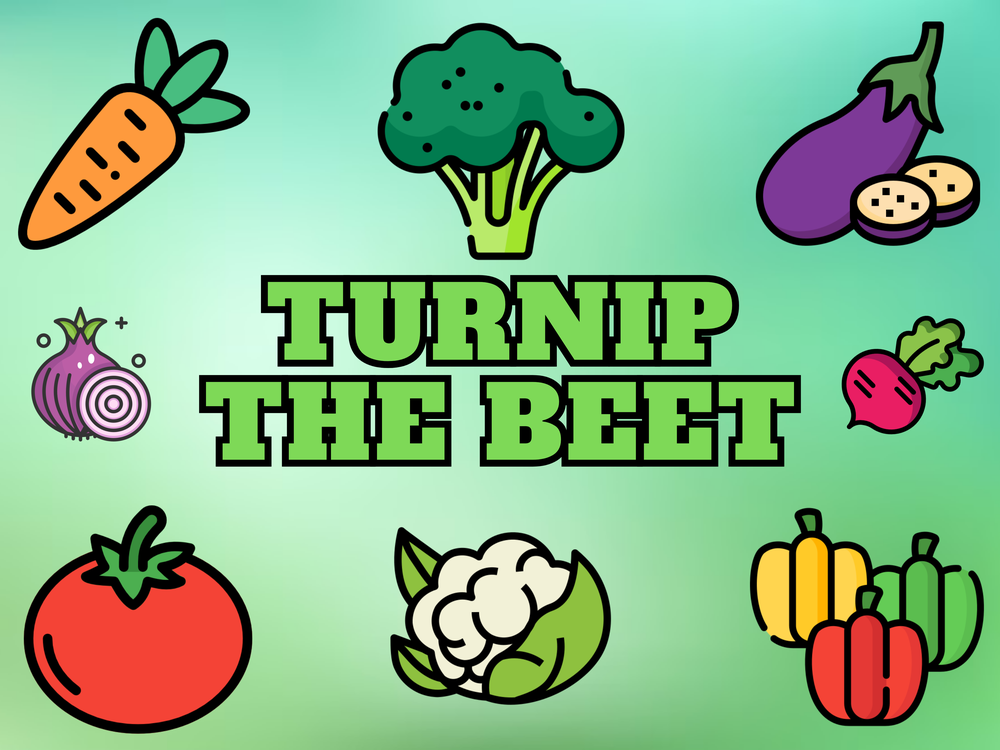
Introduction
Vegetables are some of the most nutrient-dense foods available. They're generally low in calories, net carbs, fat, and protein, while being high in fiber, which aids in proper digestion, provides satiety, stabilizes blood sugar, and reduces inflammation.
While B vitamins are found predominantly in meat and whole grains, veggies tend to have a significant quantity of vitamins C and K, while also being great sources of many minerals, including copper, magnesium, and potassium.
What doesn't show up on a nutrition facts label is a vegetables phytochemical content, which are beneficial plant compounds abundantly found in vegetables. phytochemicals are represented by food color, and they are shown to prevent DNA damage, reduce risk of heart disease, regulate hormones, fight free radicals, and strengthen your immune system. Eating a wide variety of vegetables ensures you cover a broad spectrum of nutrients for overall health.
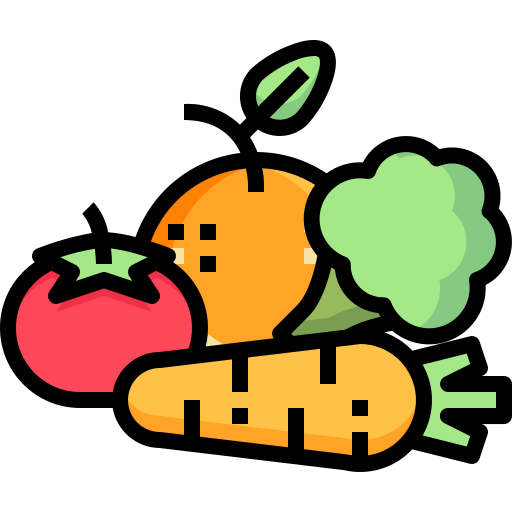

Other Posts in this Series


Contents


Acorn squash is a mildly sweet winter squash that provides fiber, thiamin, vitamin C, magnesium, and potassium. Its fiber helps regulate blood sugar and digestion, while antioxidants support skin and immune health. For a simple recipe with acorn squash, check out my Roasted Italian Chicken Breast and Acorn Squash.

Serving Size: 1 cup (140 g)
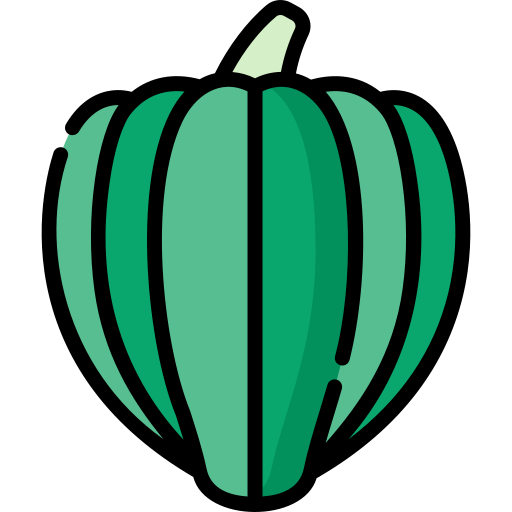
Artichokes are super rich in fiber, containing 6 g of fiber per 100 g. This fiber comes the in form of inulin, which acts as a prebiotic, regulating the digestive sysyem. Artichokes are also high in antioxidants, along with magnesium, folate, and vitamin K. They promote support liver function, may help lower cholesterol, and even increase the production of bile, which removes toxic wastes from the body. I normally just roast them, like I did in my Balsamic Caprese Chicken with Roasted Artichokes, but you can also make Lightened Up Spinach Artichoke Dip or put them on top of a Greek Salad.
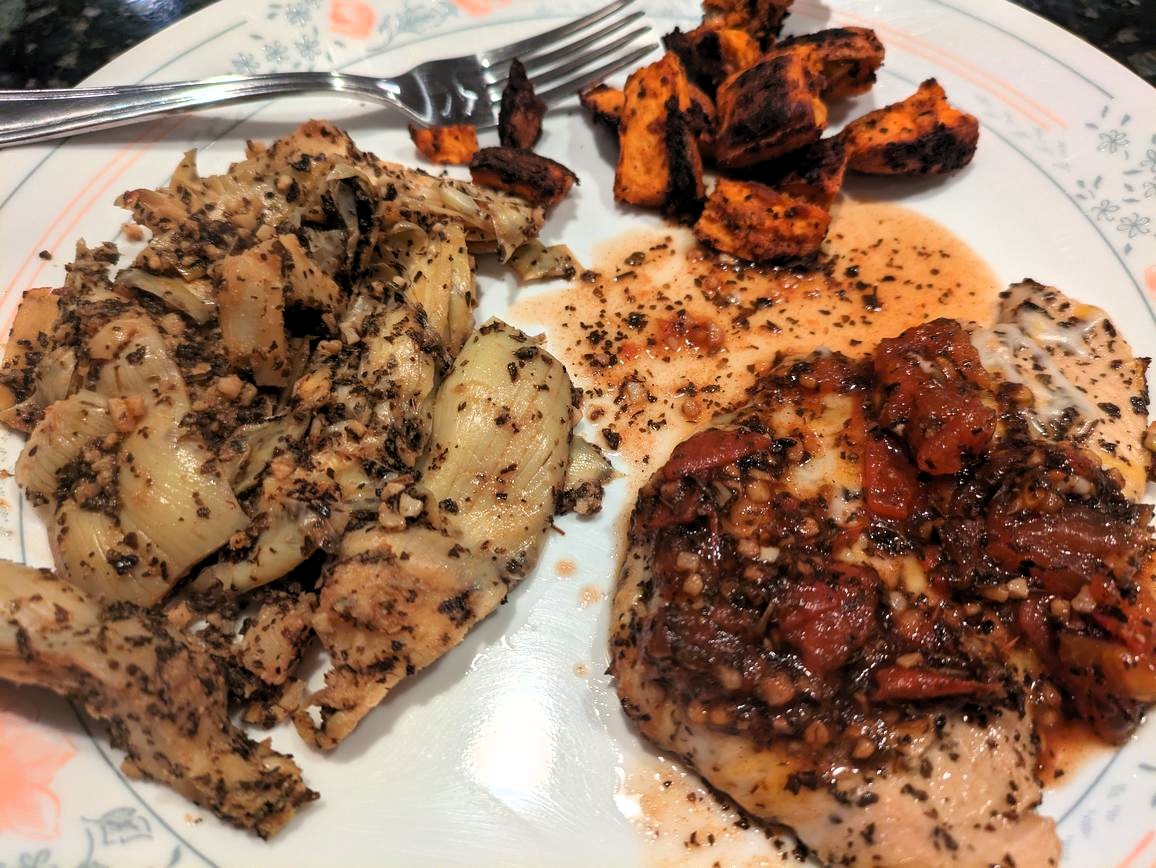
Serving Size: 1 cup (150 g)

Arugula, also known as rocket, is a peppery leafy green that’s rich in vitamin A, folate, vitamin C, vitamin K, calcium, magnesium, and manganese. Arugula also contains beneficial plant compounds that support bone strength, eye health, and provide protective antioxidants through glucosinolates. Arugula is also (just barely) a high protein vegetable (as is asparagus), containing 2.6 g of protein and 25 calories per 100 g.
Serving Size: 1 cup (20 g)
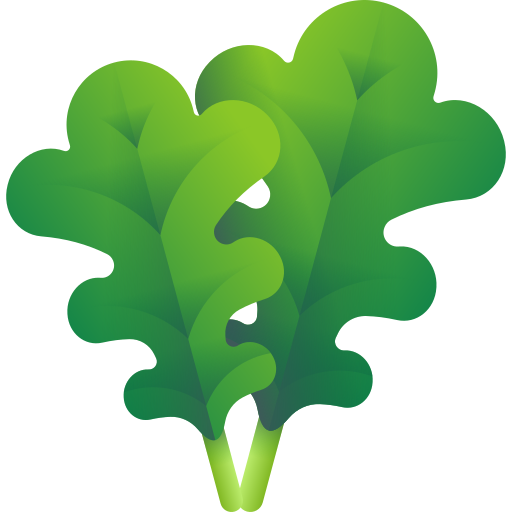
Asparagus is notorious for making your pee smell, but what benefits does it have? For starters, it's low calorie while offering many B vitamins. These include thiamin, riboflavin, and folate, which helps form DNA and RNA. Additionally, asparagus contains a significant amount of vitamin K, copper, and iron. Additionally, asparagus contains the antioxidants quercetin and kaempferol, which can lower blood pressure and reduce inflammation, as well as protodioscin, which can increase libido and decrease the negative effects of stress. It supports heart and ovarian health, aids healthy pregnancy through folate, and may act as a natural diuretic (hence the smelly pee). Asparagus is also (just barely) a protein vegetable (as is arugula), containing 2.2 g of protein and 20 calories per 100 g.
Serving Size: 1 cup (134 g)

Beets are naturally sweet root vegetables, especially when roasted, as they contain 6.8 g of natural sugars per 100 g. They're quite rich in folate and manganese, and they contain almost twice as much potassium than bananas per calorie. The best part about beets is their high nitrate content, which improves blood flow and endurance, as well as cognition and post workout recovery. Their deep purple color is the source of many antioxidants, which support detoxification and heart health. It's because of this that beets are often considered a 'superfood', so check out my Date Night Superfood Bowls and my Creamy Roasted Beet Hummus.


Serving Size: 1 cup (136 g)
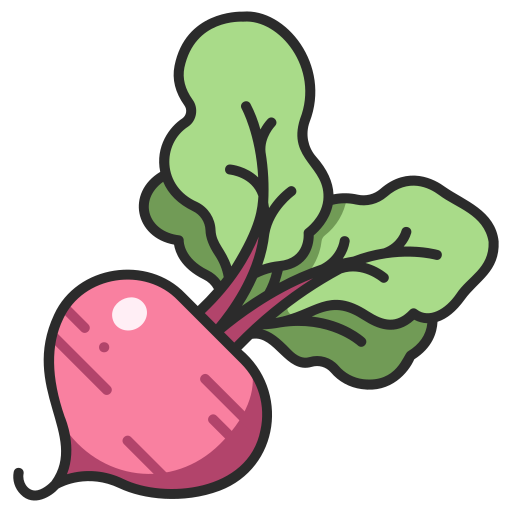
Beet greens are the purple and green colored leaves that grow from beets. They're absolutely packed with vitamin K, containing 152.0 mcg (127 %) in just 1 cup (38 g), supporting blood clotting. Beet greens are also rich in vitamin A, particularly the carotenoids lutein and zeaxanthin, which benefit eye health by combatting macular degeneration. Moreover, beet greens are a rich source of vitamin C, which has anti-inflammatory effects and aids in tissue repair. Finally, beet greens contain gluconsinolates, which are shown to be anti-cancer, anti-microbial, and anti-inflammatory.
Serving Size: 1 cup (38 g)
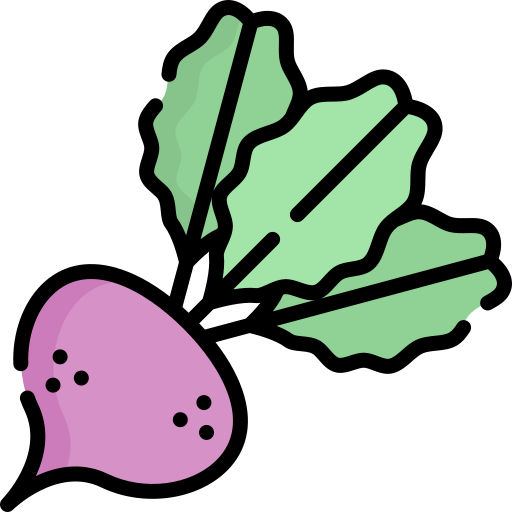
Bell peppers are sweet for a vegetable, and that's because they're not one. While technically a fruit, bell peppers are culinarily a vegetable, just like cucumbers and tomatoes, so I'm covering them here. They are one of the best sources for vitamin C; you can get over 100 % of your daily value of vitamin C in just 1 bell pepper, helping to strengthen the immune system, protect against oxidative stress, and support collagen production for skin health.
Additionally, their different colors provide antioxidants, as well as adding natural sweetness with very few calories The beta-carotene and capsanthin benefit eye health, quercetin can protect against chronic disease, and bell peppers can also act as a natural diuretic.
Bell peppers are probably the most abundant vegetable in my dinners. They're so easy to dice up and throw into anything, either raw or cooked. Peppers are a staple ingredient in the beloved chili, such as my Creamy Vegan White Bean Chili, Slow Cooker Chili, Low FODMAP Chili, High Protein Peanut Butter Chili, and 24 Hour Chili.

Of course, bell peppers are fantastic in other soups and stews, such as Simple Ratatouille Stew, Stewed Chicken Cacciatore, Crockpot Chicken Stew, Maafe (Aftican Peanut Stew), (I'm Banned From) New England Clam Chowder, and (No Longer Allowed In) Manhattan Clam Chowder.

Outside of soups and stews, there are a myriad of uses for bell peppers. You can make stuffed peppers, such as my Turkey & Rice Stuffed Bell Peppers. Roasted red peppers are a personal favorite of mine, and are featured in my Greek Salad with Chicken, Roasted Red Pepper Hummus, Mediterranean Sweet Potato Salad, and Mediterranean Pasta Salad.

Peppers are also a great way to get some vitamin C for breakfast, such as in my Higher Protein Scrambled Eggs and Sweet Potato Home Fries.
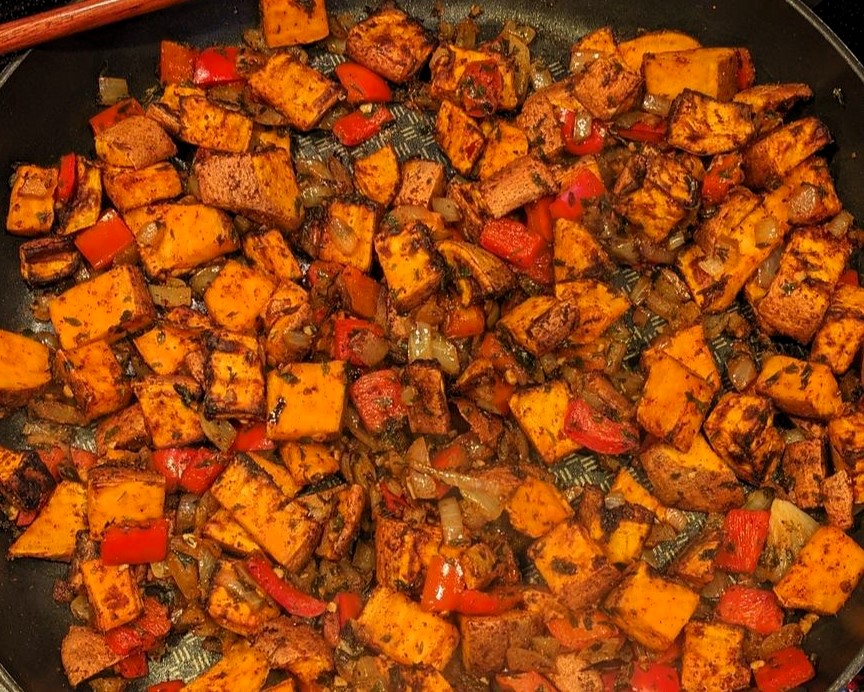
Peppers, along with onions, mix great into meat (or even vegetarian) dishes, such as Dutch Oven Bolognese Sauce, Creamy Buffalo Chicken and Peppers, Baked Rice and Beans with Vegetables, Sloppy Joe Skillets, Chicken Fajitas with Peppers, Low FODMAP Chicken Tacos, and No Butter Chicken with Quinoa.

Finally, you can of course just eat bell peppers raw. A classic snack is dipping peppers into hummus. As for dishes featuring raw peppers, check out my Crunchy Salad, Mediterranean 3 Bean Salad, and Refrigerator Salad Base.
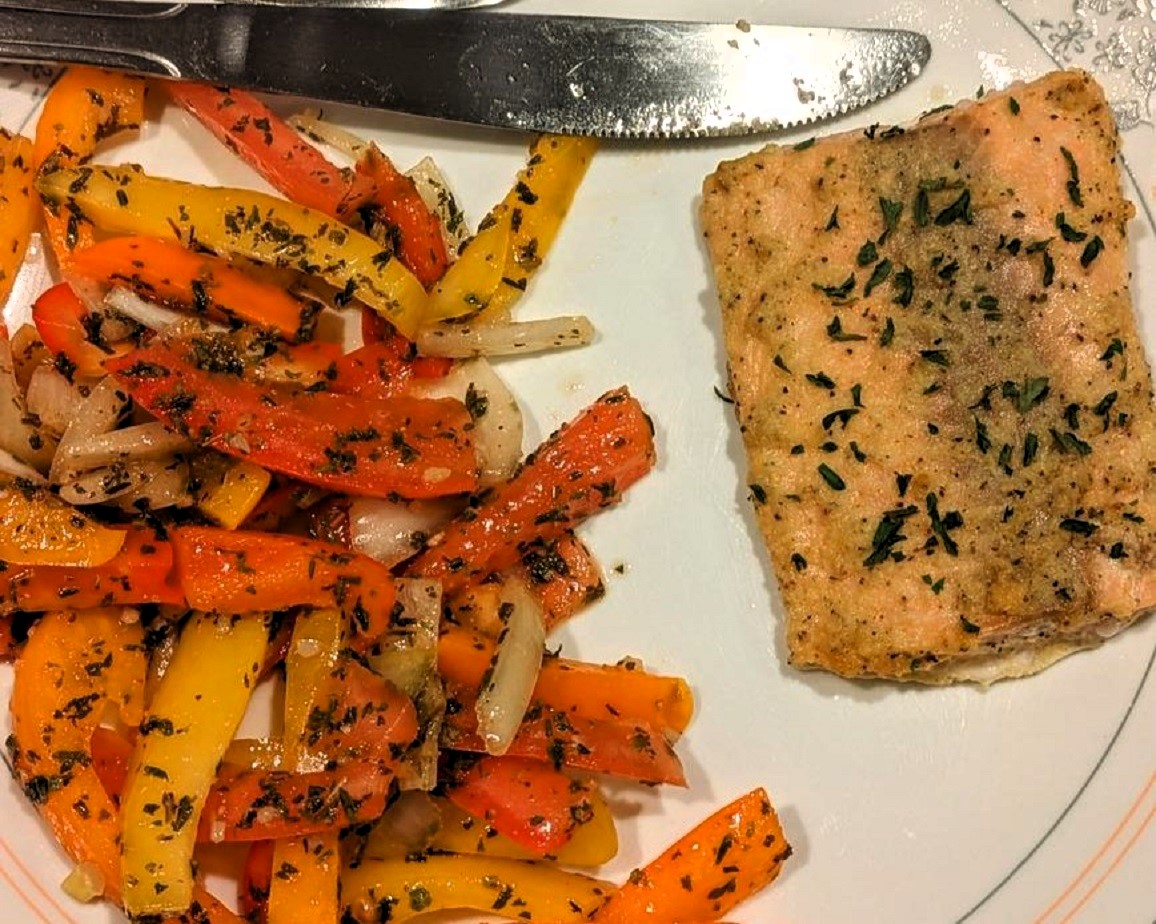
Serving Size: 1 medium (119 g)
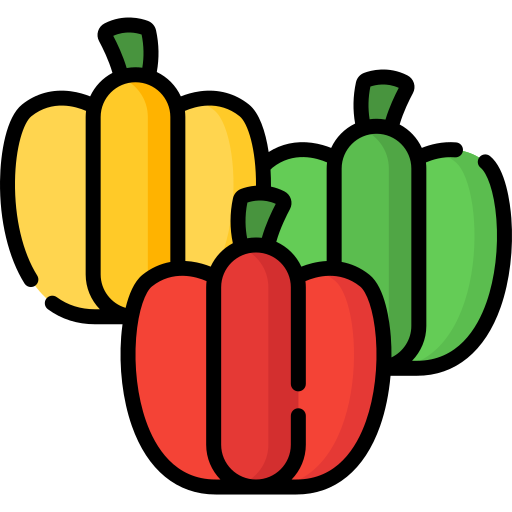
Bok choy is a type of Chinese cabbage. It is a cruciferous veggie that contains vitamins A, B6, C, and K, as well as calcium. It has anti-cancer properties, maintains blood pressure, supports immune function, maintains strong bones, and provides protective phytonutrients like sulforaphane.
Serving Size: 1 cup (70 g)

Broccoli is a classic vegetable for a reason. It is a cruciferous vegetable that's rich in fiber, vitamin B5, vitamin B6, folate, vitamin C, vitamin K, and choline. Broccoli also contains the antioxidants lutein and zeaxanthin, helping to preserve eye health. It's quercetin and kaempferol can manageage blood pressure and reduce inflammation. All in all, broccoli supports digestion, boosts immunity, aids in brain and memory development, but smells like feet if you don't properly season it.
I eat broccoli all the time. A bag of frozen broccoli (or cauliflower) in my freezer is a must for a cheap, easy, and nutritious vegetable. Most of the time, I just make my Simply Roasted Vegetables with frozen broccoli. Some recipes with roasted broccoli are the following:

Of course, there are other ways to eat broccoli than just roasted. Broccoli is good in soups and stews, as I did in my Crockpot Chicken Stew. Very unconventional are my Air Fryer Broccoli Fries, which combine blended broccoli with spices for a healthy, 'french fry-esque' snack that's good for people who want to eat more veggies and hide it as much as possible. FInally, you can of course just have old reliable steamed broccoli, so see my Steamed Vegetables That Don't Suck.
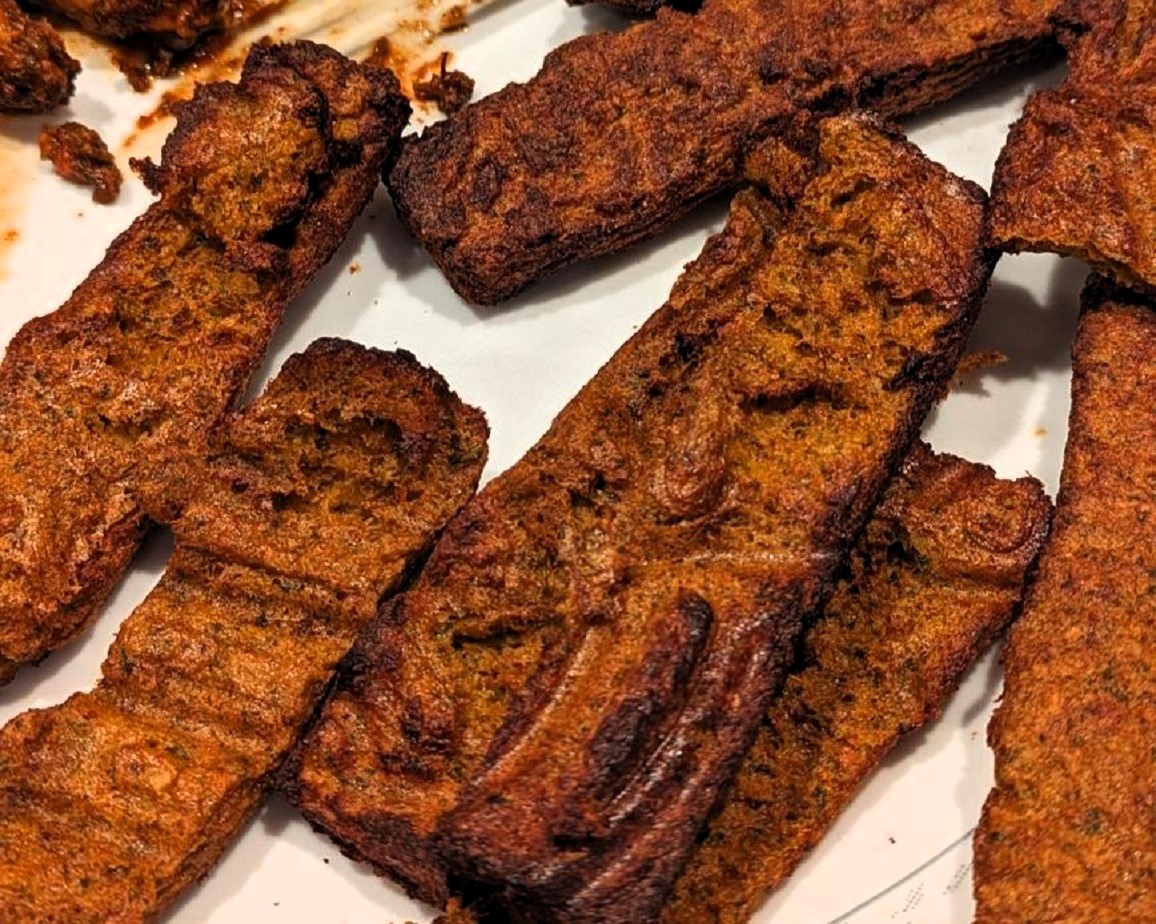
Serving Size: 1 cup (91 g)

Brussel sprouts (or as my Dad calls them, 'Ass Grenades') are small cruciferous veggies packed with fiber, containing 4 g of fiber per 100 g. Being a green cruciferous vegetable, brussel sprouts are especially rich in vitamin K and vitamin C, as well as manganese, folate, thiamin, and vitamin B6. They also contain the antioxidants sulpforaphane, kaempferol, and quercetin, aiding in reducing inflammation. Brussel sprouts also uniquely contain a small amount of the omega-3 fatty acid ALA. They support heart and bone health, and their phytonutrients promote detoxification (particularly indole-3-carbinol).
Brussel sprouts are another staple for me. I always have a couple of bags each of frozen broccoli, brussel sprouts, and cauliflower on hand to make some Simply Roasted Vegetables.

Of course, there are other ways to eat brussel sprouts. I have a couple recipes featuring roasted brussel sprouts, such as Roasted Salmon and Sprouts with Tzatziki, Ground Thanksgiving, and Soy Sauce Chicken and Brussel Sprouts.

Serving Size: 1 cup (88 g)
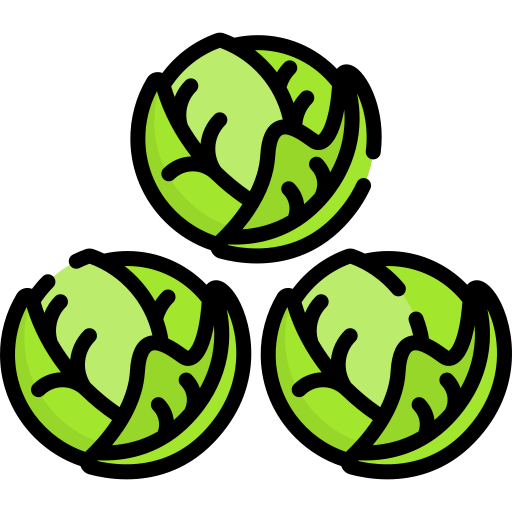
Butternut squash is naturally sweet and mildly starchy vegetable that is high in betacarotene, the precursor to vitamin A, which promotes eye, skin, and reproductive health. Additionally, butternut squash is a good source of vitamin C and vitamin E, supporting the immune system while being a filling, low calorie food.
Butternut squash was the first vegetable I ever really enjoyed eating. We didn't use to get it growing up, but then started getting it all of the time when we found out that we all loved it. Most of the time, my mom would make Roasted Butternut Squash with Onions. But I've also had butternut squash in other ways, such as Butternut Squash RisOATto, Roasted Butternut Squash Puree, and Three Sisters - Squash, Beans, and Corn.

Serving Size: 1 cup (140 g)
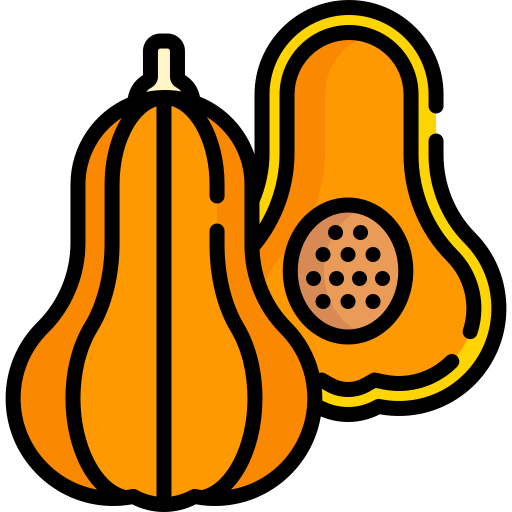
Cabbage is a versatile cruciferous vegetable that typically comes in either green or red varieties. Cabbage is a good source of vitamin C, and red cabbage in particular contains protective phytonutrients. Its fiber content supports gut health, reduces inflammation, and may help lower the risk of chronic disease. Like other cruciferous veggies, cabbage supplies glucosinolates, quercetin, kaempferol, and indole-3-carbinol, which are anti-inflammatory, regulate blood pressure, protect against chronic disease, and support detoxification.
Cabbage is very easy to incorporate into your diet, both raw and cooked. Cabbage is the signature ingredient in coleslaw, so check out my BBQ Pulled Chicken and Coleslaw for an oil and vinegar (not mayo-based) coleslaw recipe. You can sautee cabbage like any other leafy green vegetable, such as in my Egg Roll Skillet Bowls and Peanut Chili Chicken Skillet. Cabbage is also a staple ingredient in vegetable soup. It's so versatile, you can even make bread out of it.

Serving Size: 1 cup (89 g)
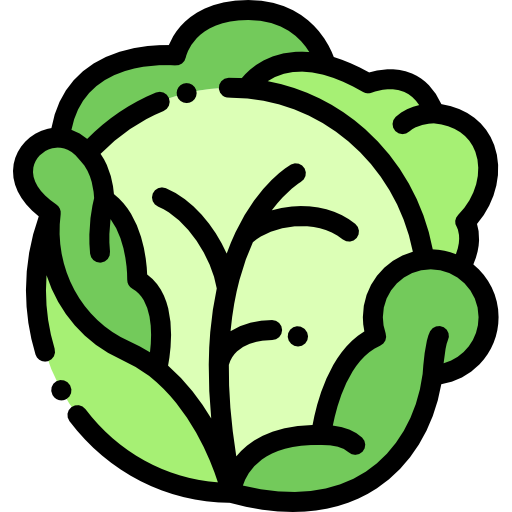
Carrots are best known for vitamin A. In addition to butternut squash and sweet potatoes, carrots are extremely rich in beta-carotene, which the body converts into vitamin A, preventing against free radical damage and benefitting eye health. Carrots also provide vitamin K, fiber and potassium, which helps to promote good vision, skin health, and digestion.
Carrots are easy to incorporate into your diet, both raw and cooked. Most of the time, I take large carrots, cut them into little sticks, and just snack on them raw (or just buy baby carrots). Additionally, I've used carrots in various soups and stews, such as (No Longer Allowed In) Manhattan Clam Chowder, (I'm Banned From) New England Clam Chowder, Low FODMAP Chili, Dutch Oven Bolognese Sauce, or just a plain veggie soup.

I also like to sautee some carrots and mix them into my dishes, such as Ground Thanksgiving, High Protein Veggie Ground, Nam Sod (Thai Pork Salad), Peanut Chili Chicken Skillet, Baked Rice and Beans with Vegetables, and Turkey Oatmeal Bolognese.
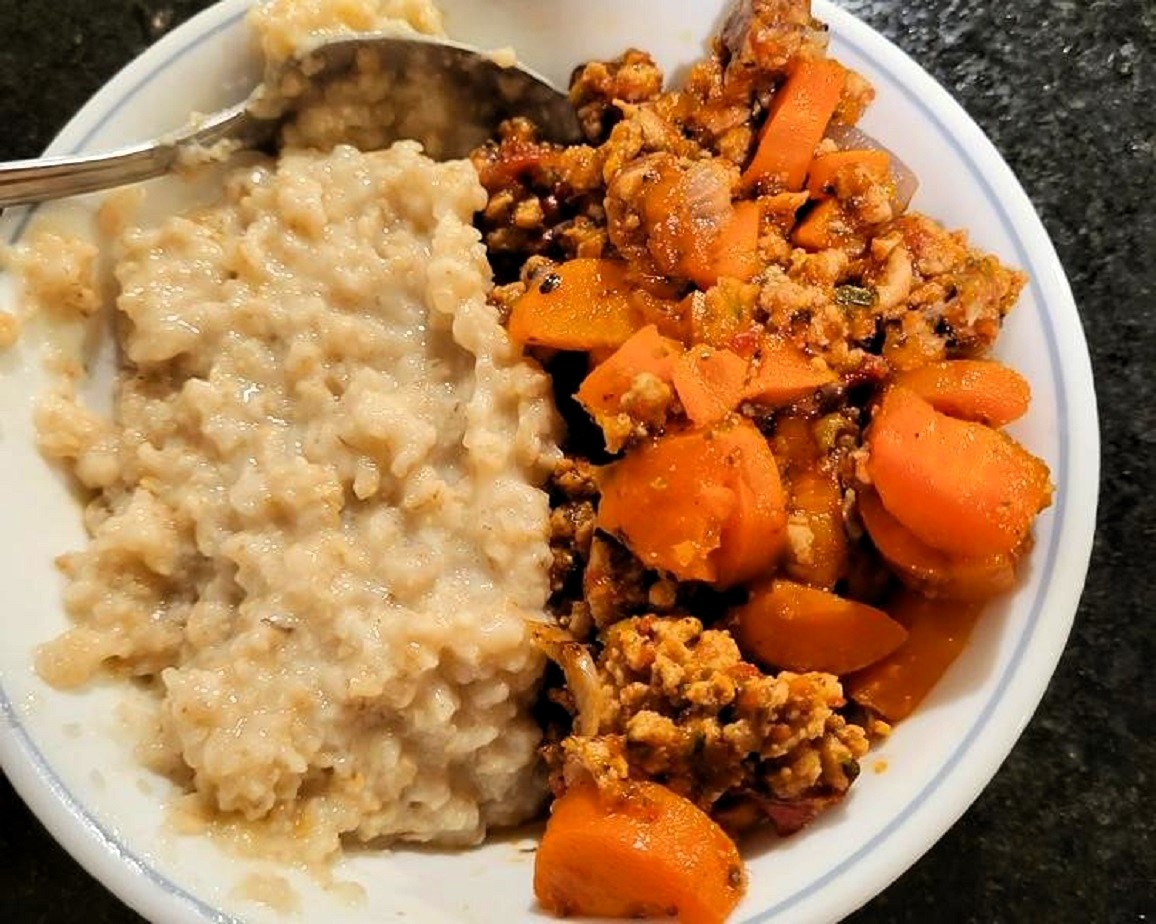
Carrots are typically often used in sweet dishes for their sweet flavor, especially when roasted. Check out my Carrot Cake Energy Bites and Layer Protein Carrot Cake.

Serving Size: 3 oz (85 g)
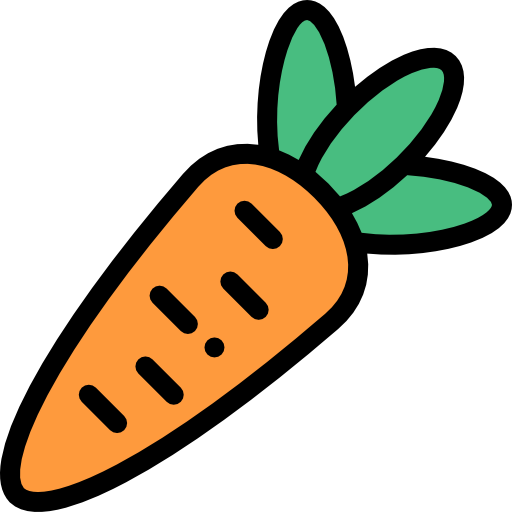
I like to refer to cauliflower as albino broccoli. Their macro and micro nutrient contents do vary a bit though. Cauliflower is lower in calories, with slightly less fiber and protein. Under the hood, cauliflower is a good source of both vitamins C and K, as well as folate, though a little less than broccoli. Cauliflower's phytonutrients support detoxification and may protect against oxidative stress. It's also one of the best sources of choline, which supports brain health, and it's indole-3-carbinol (I3C) supports detoxification.
Cauliflower is another staple for me. I always have a couple of bags each of frozen broccoli, brussel sprouts, and cauliflower on hand to make some Simply Roasted Vegetables.

Like how zucchini is often used as a low carb substitute for pasta, cauliflower is often used as a low carb substitute for mashed potatoes and rice. Of course, I'm talking about mashed cauliflower and cauliflower rice. I've made Cauliflower Mash Shepard's Pie for a lower calorie substitute for mashed potatoes. Cauliflower rice is great and well known for a reason, so check out my Lebanese Riced Cauliflower Casserole, Simple Cauliflower Rice, and 'Cheesy' Cauliflower Rice and Beans.
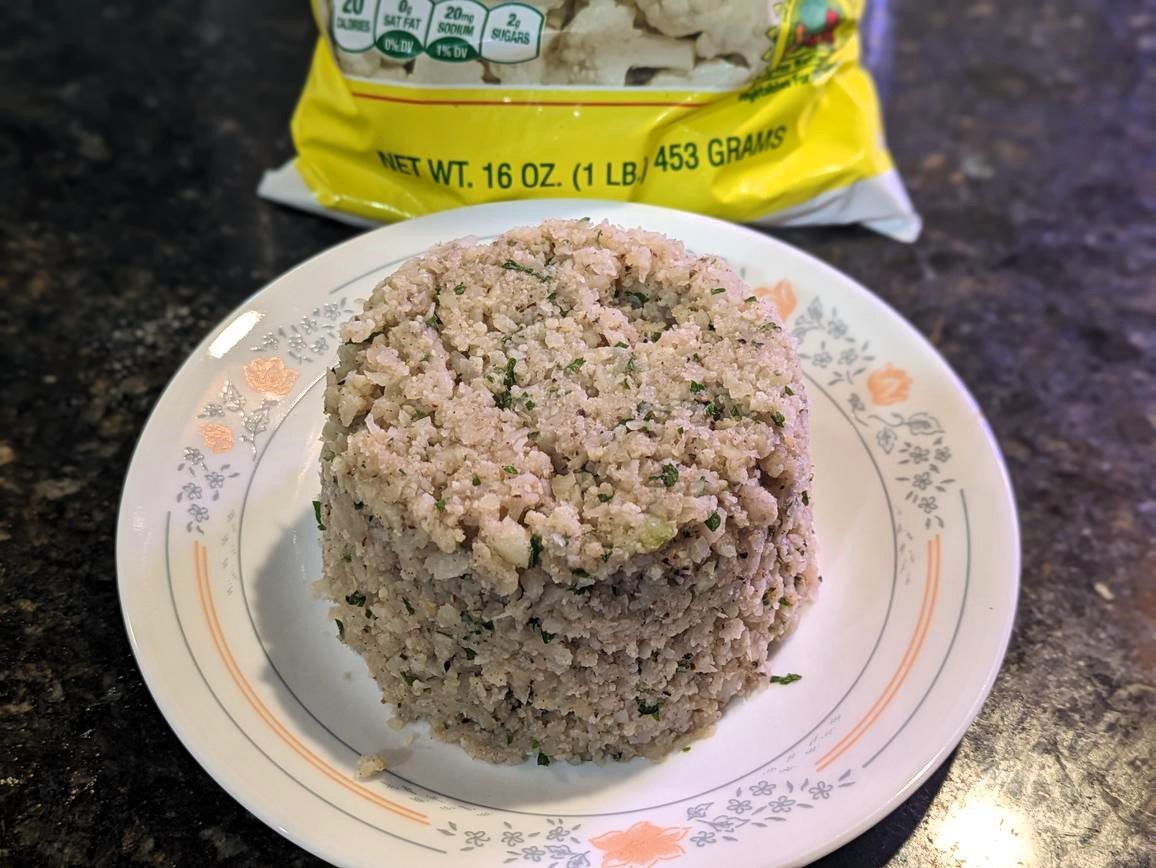
There's of course Cauliflower Flaxseed Pizza Crust, a great gluten free alternative. I even have some cauliflower blended into the base of High Protein Veggie Ground, a vegetarian ground meat substitute that's still a good source of protein. Finally, you can always just steam cauliflower, My Steamed Vegetables That Don't Suck is a common 'I'm too lazy to make a vegetable' vegetable.

Serving Size: 1 cup (107 g)

Celery sucks. Oh wait, this list is supposed to be about nutrition. Celery is extremely low in calories, containing only 14 calories per cup (101 g). Containing mostly water, celery is a hydrating and a light source of fiber and vitamin K, supporting bone, heart, and digestive health. Even nutritionally, celery doesn't really have much going on other than being a low calorie snack.
Serving Size: 1 cup (101 g)
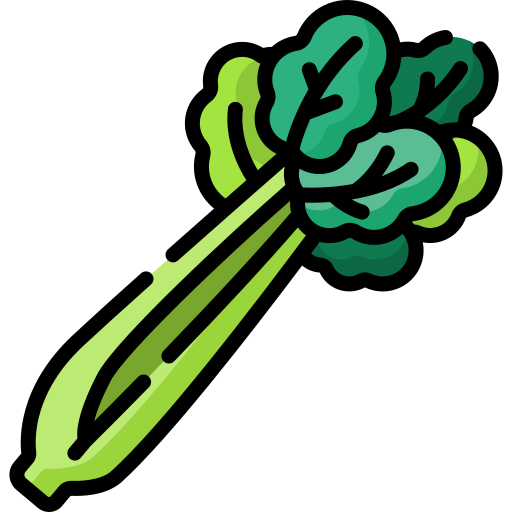
Collard greens are a nutrient dense green leafy vegetable. They're especially high in vitamin K, which helps to support blood coagulation, bone building, and cell growth. Their high folate, vitamin C, and vitamin A contents aid in DNA synthesis, immune function, and eye health. Collards contain some B vitamins as well, notably B2 and B6, helping to support energy production and hormone regulation. Finally, collard greens support bones, teeth, and connective tissue through calcium and manganese, as well as providing antioxidants for long-term wellness, such as sulforaphane and I3C. Consuming collard greens raw yields more vitamin C, while consuming them cooked yields more carotenoids.
Serving Size: 1 cup (36 g)
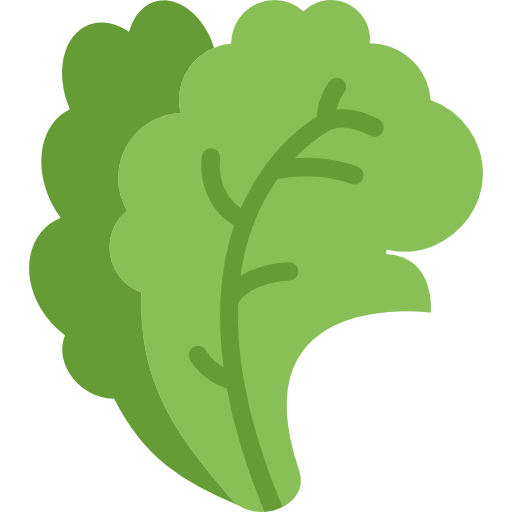
Cucumbers are mostly water, making them a hydrating and refreshing snack or side dish. While technically a fruit, cucumbers are often treated as a vegetable in the kitchen, just like bell peppers and tomatoes. The green skin of cucumbers contains small amounts of vitamin K, aiding in protein synthesis. While not very nutrient dense, cucumbers promote hydration, aid skin health, help digestion, and reduce inflammation while being low in calories.
When you think of cucumbers, you typically think of a raw snack. But cucumbers can be used in various dishes, both raw and cooked. For raw uses, there's Asian Cucumber Salad, Mediterranean Sweet Potato Salad, Mediterranean Pasta Salad, and Greek Tzatziki Sauce. You can even sautee cucumber as a refreshing vegetable, like in my Lemon Feta Chicken Bowls.

Serving Size: 1 cup (104 g)

Eggplant is a good source of both fiber and manganese while being low in calories. Outside of that though, eggplant doesn't offer much in terms of vitamins or minerals. Where the benefits of eggplant come from though is the skin, which contains beneficial plant compounds like anthocyanins. This gives eggplant its purple color while supporting heart health, providing antioxidants, and lowering cholesterol. Eggplant in particular contains the anthocyanin nasunin, which promotes brain health.
What's the first eggplant dish that comes to your mind? Probably eggplant >parmesan right? My Hassle Free Eggplant Parm skips out on any breading and frying, which makes it both easier and significantly healthier. Fun fact: 'Pollo alla Parmigiana' (chicken parm) was actually an Italian-American adaptation of the Italian dish 'Melanzane alla Parmigiana' (eggplant parm), meaning that eggplant parm actually came before chicken parm. No, eggplant parm is not the vegetarian variation of chicken parm. Rather, chicken parm is the carnivorous variation of eggplant parm. The more you know.

If you take my Hassle Free Eggplant Parm recipe and roll the eggplant around the cheese filling (instead of layering it), you'd end up with my Leaner Eggplant Rollatini. Eggplant is also the base ingredient in Greek baba ganoush, a roasted eggplant spread with lemon and tahini, similar to hummus, so check out my Lemon Baba Ganoush Without Oil. Or if you can't get enough hummus recipes, there's my Mediterranean Roasted Eggplant Hummus, which combines together hummus and baba ganoush.

Little rounds of eggplant also make a great base for healthy pizza bites, so see my Mini Eggplant Pizzas. Sauteed eggplant is also a great addition to nearly every dish for it's sweet and roasty flavor. Examples are my Simiple Ratatouille Stew and Grilled Eggplant and Chickpea Salad. Have I mentioned that eggplant is one of my favorite vegetables?

Serving Size: 1 cup (82 g)
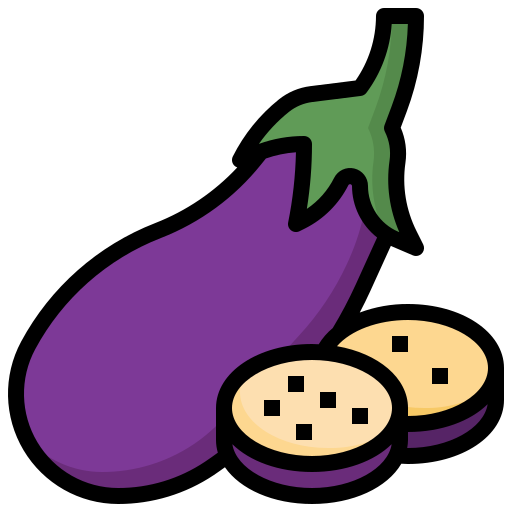
Fennel has a mild licorice flavor, and gets sweet when roasted. It provides natural sugars, fiber, and vitamin C, aiding in digestion, reducing bloating, and supporting immune health. The standout nutrient of fennel is vitamin K, a fat soluble vitamin that may prevent cancer growth. Finally, fennel contains the polyphenols apigen, chologenic acid, and quercetin, which combat chronic disease and inflammation.
Serving Size: 1 cup (87 g)
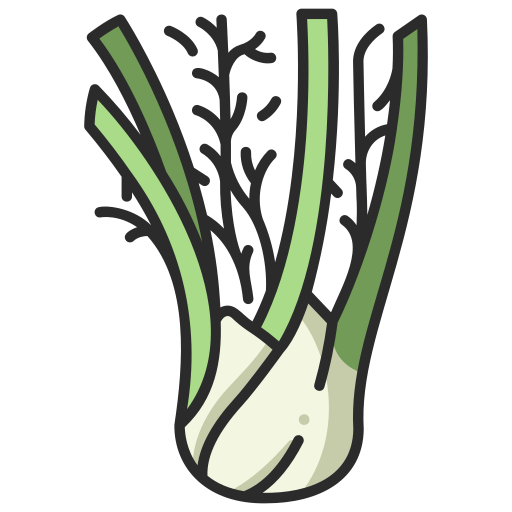
Yes garlic is a vegetable. Per 100 g, garlic is a rich source of thiamin, vitamin C, manganese, and selenium. Realistically though, you'd have to consume enough garlic to ward off a horde of vampires to obtain any meaningful amount of vitamins and minerals. However, garlic is well known for its bioactive compounds, and has been used for centuries in herbal medicine. Garlic is particularly rich in sulfur compounds, like allicin, s-allyl cysteine (SAC), and diallyl disulfide (DADS), which can be cancer protective. It may support heart health, boost immunity, and lower blood pressure, while also having natural anti-microbial properties.
I could sit here and list all the uses for garlic, but it would honestly be shorter to tell you where to not use garlic. Similar to onions, basically any dish can be improved by adding some garlic. I personally use a combination of garlic powder and minced garlic (aka 'jarlic'), because I can't be bothered to peel and chop fresh garlic. Though occasionally fresh garlic is absolutely worth it for it's stronger and fresher flavor, such as my 'Cheesy' Garlic Hummus and Pesto Classico recipes. Or, you can make your own Roasted Garlic Paste For Your Freezer instead of buying the tubes at the store for significantly more money.
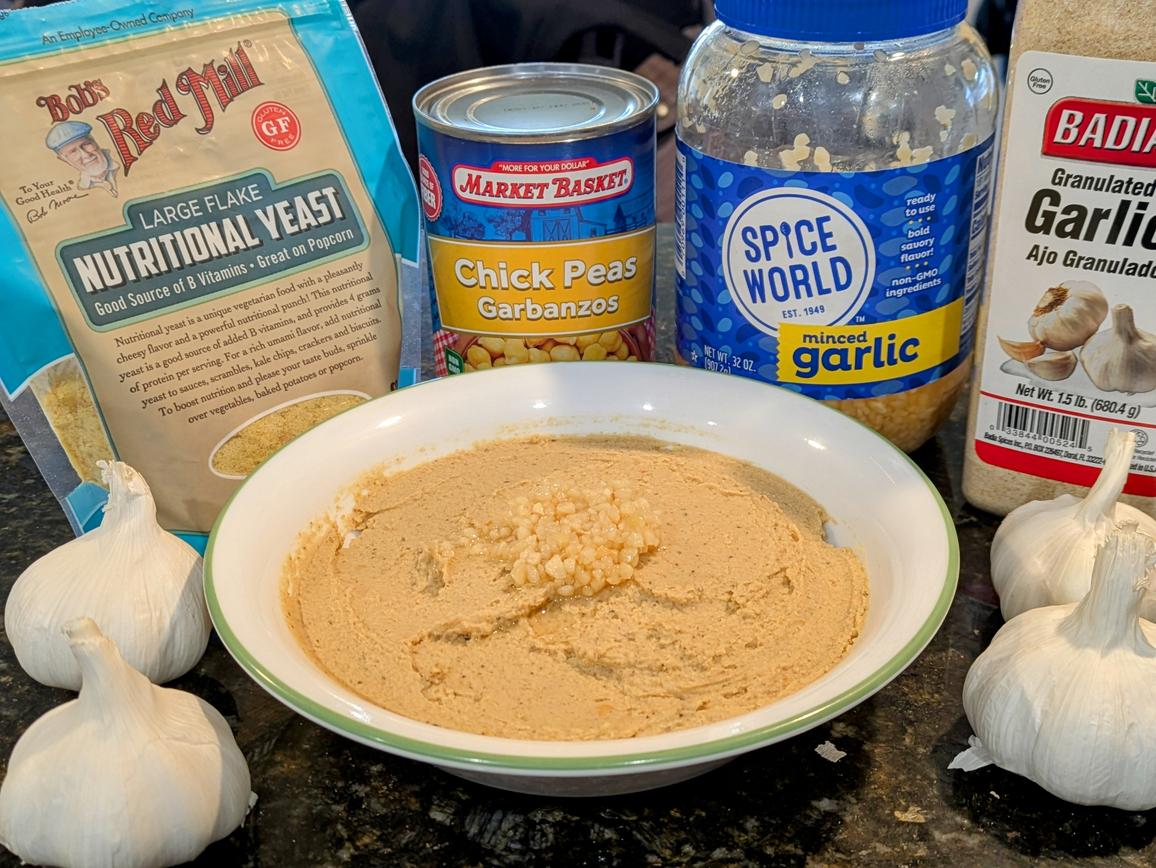
Serving Size: 1 clove (3 g)
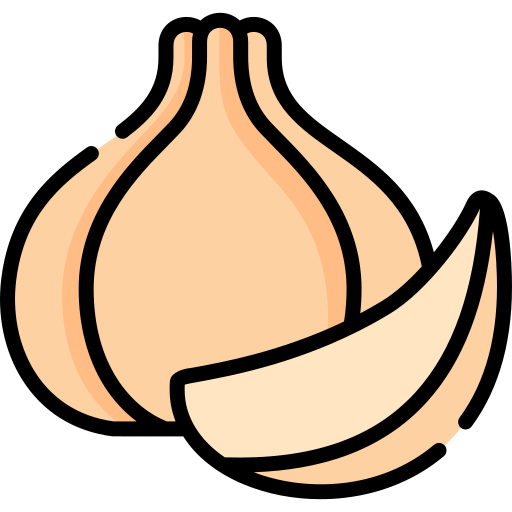
Similar to garlic, ginger is used more as a spice than a vegetable, and thus the vitamins and minerals in actual servings are quite minimal. Going beyond the nutrition label though, ginger offers antioxidants and anti-inflammatory plant compounds. Ginger has long been used in herbal medicine due to it's concentration of gingerol, which can reduce inflammation, act as an anti-bacterial, and reduce joint pain and muscle soreness. Additionally, ginger is rich in shogoal, which can combat nausea, aid digestion, fight neurodenerative diseases, and regulate blood sugar.
If I'm cooking with ginger, that typically means using dried ginger powder instead of fresh ginger. Unless ginger is one of the standout flavors of the dish, such as No Butter Chicken with Quinoa, Chicken Noodle Stew, Nontraditional Kung Pao Chicken, or Lemon Ginger Tea. There's also pickled ginger, which is typically served alongside sushi, but is honestly great on it's own. Somehow pickled ginger stumbled its way into The Wacky Cake, don't know how that happened...

Serving Size: 1/4 cup (24 g)

Green beans, or string beans, are not a bean; in fact, they're a vegetable. They provide some fiber and natural sweetness, bundled with some vitamin C and vitamin K. They can improve digestion, promote a healthy immune system, support bone health, and aid in blood coagulation while being low in calories.
Serving Size: 1 cup (100 g)

Kale is the golden child of vegetables; it's the nutrition hipster food of choice for a reason. Kale is a nutrient powerhouse, being an exceptional source of mainly vitamin K and vitamin C, while also being good sources of vitamin A, riboflavin, calcium, and manganese. Kale is also rich in the carotenoids zeaxanthin, beta-carotene, and lutein, while also containing the antioxidants I3C and sulforaphane. This dark leafy green can be eaten both raw or cooked, though is most nutritious when consumed raw. Kale supports bone strength, eye health, and collagen production, while providing powerful antioxidants.
I don't have too many recipes here calling for kale. Mostly because if I'm using frozen (or fresh) kale, I'll substitute it in place of spinach or another leafy green. For some kale specific recipes though, check out my Date Night Superfood Bowls and Bean Kaled by Cheese.

Serving Size: 1 cup (21 g)
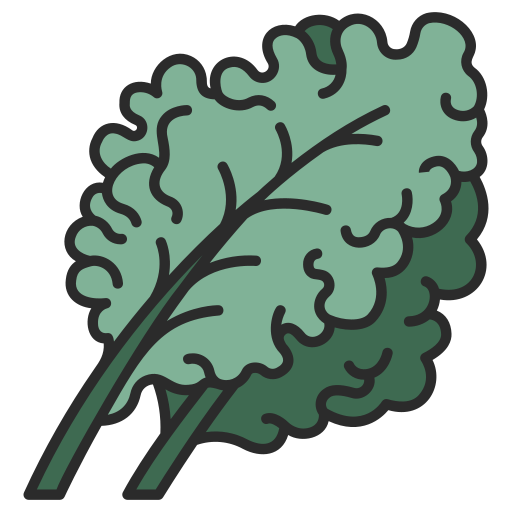
I'm a fan of kohlrabi, though most people haven't heard of it. Kohlrabi is a low calorie crunchy cruciferous veggie with a significant quantity of vitamin C, which aids as an antioxidant and can reduce inflammation. Kohlrabi also contains fiber, copper, potassium, and vitamin B6, aiding in digestion, red blood cell formation, immune system health, and fluid balance. Finally, kohlrabi contais anthocyanins, particularly isothiocyanates and glucosinolates, which benefit heart health and reduce inflammation. You can slice it up raw like carrots, or roast them like many other veggies.
Serving Size: 1 cup (135 g)
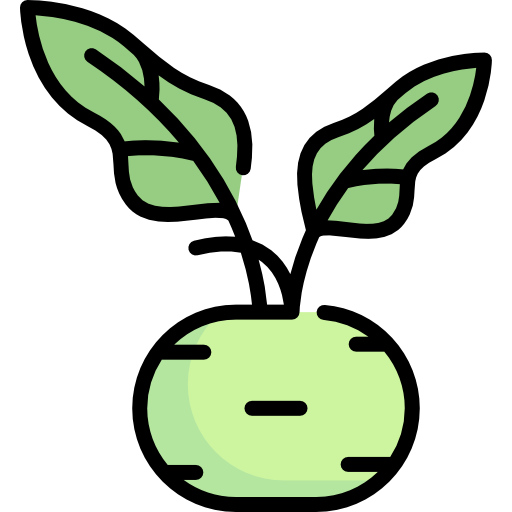
If broccoli is the cooked vegetable, then lettuce is the raw vegetable. Being the base of most salads, lettuce is light and hydrating, providing vitamin A, folate, and vitamin K. While iceberg lettuce is not bad for you, romaine is significantly healthier for you in every way. Romaine contains vastly more vitamins and minerals than iceberg lettuce, aka 'crunchy water'. It contains antioxidants like tocopherols and vitamin C, which reduce inflammation. Romaine lettuce supports hydration, aids in bone health, and adds volume to meals with very few calories.
For most people, lettuce is strictly a raw vegetable used for salads, so see my Salad Base For Your Fridge, Nam Sod (Thai Pork Salad), or Chopped Burger Bowl with Sweet Potatoes. It's other main use is as a sandwich or burger topping. Though honestly I've sauteed lettuce like it was spinach, kale, or cabbage to great success; you should try it sometime.
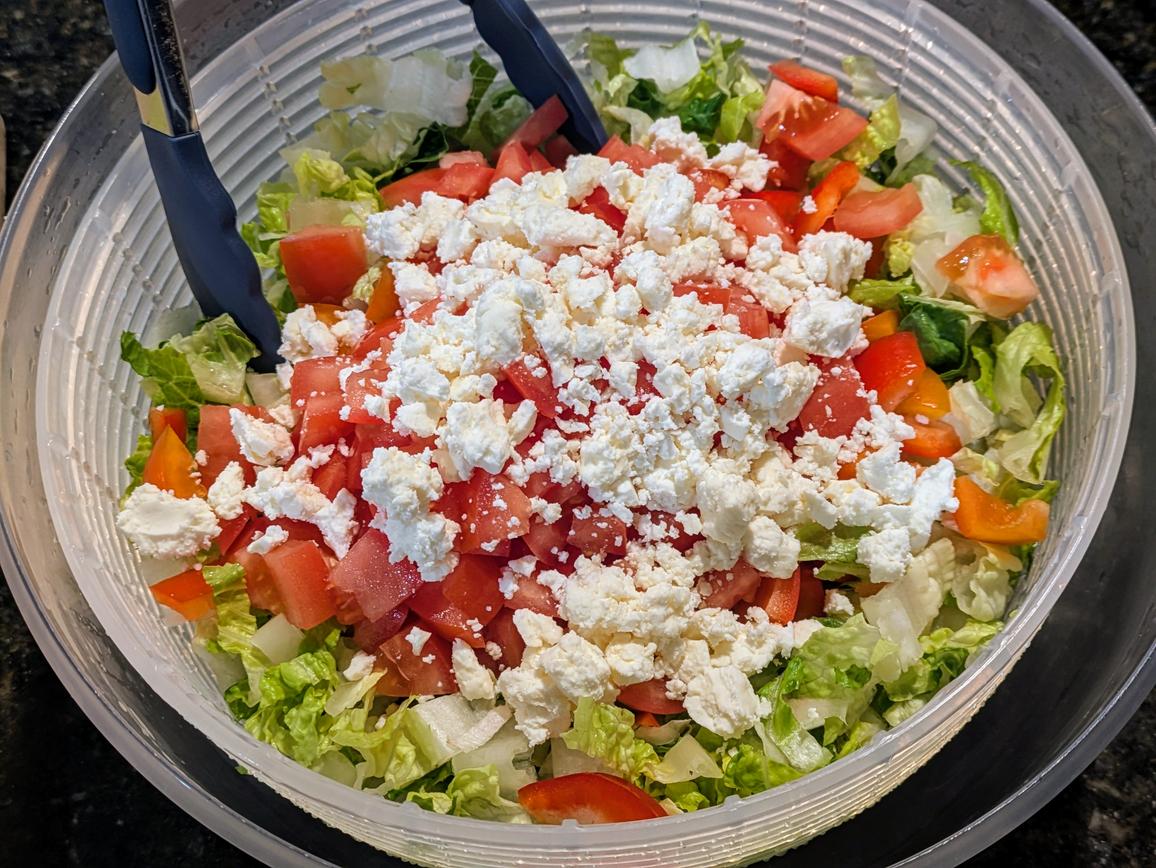
Serving Size: 1 cup (47 g)

Mustard greens are the leaves that grow from the mustard plant, which produces mustard seeds and leads to the condiment appropriately named mustard. Mustard greens have a peppery taste, and are high in fiber, iron, magnesium, and potassium. This dark leafy green is rich in vitamins A, C, E, and K. Mustard greens are also rich in the carotenoids lutein and zeaxanthin, benefitting eye health, as well as the antioxidants I3C and sulforaphane, which stimulate detoxification and reduce inflammation.
Serving Size: 1 cup (56 g)
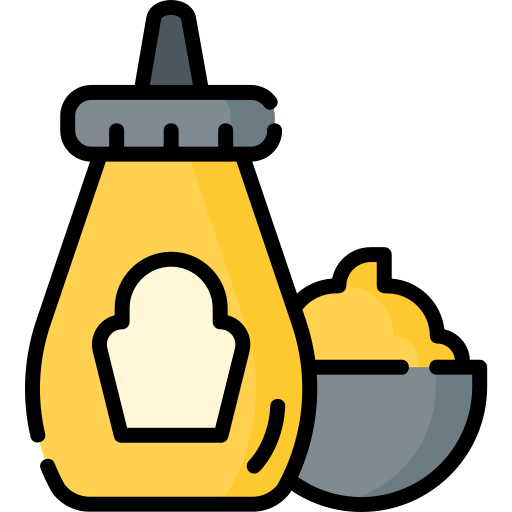
Ah, the humble onion. Basically every dish starts with sauteeing an onion, but why? Not only are they a sweet, savory, and delicious addition to any meal, but onions offer a fair bit of nutrition as well. Onions contain antioxidants like quercetin, which can regulate blood sugar, along with small amounts of vitamin C, which can reduce inflammation. Onions uniquely contain onionin A (ONA), a sulfur compound which may help combat cancer and regulate white blood cells.
I could sit here and list all the uses for onions, but it would honestly be shorter to tell you where to not use onion. Similar to garlic, basically any dish can be improved by adding some onion. I personally use a combination of raw onions, cooked onions, or onion powder, depending on the dish.
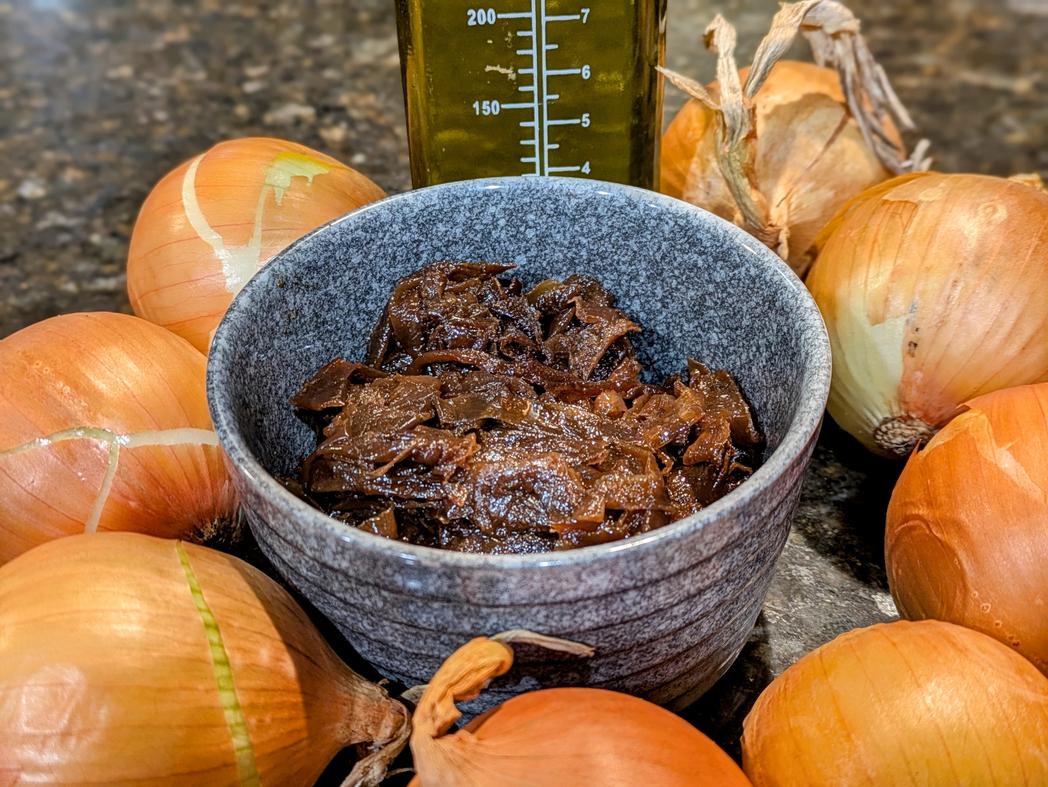
Serving Size: 1 cup (160 g)
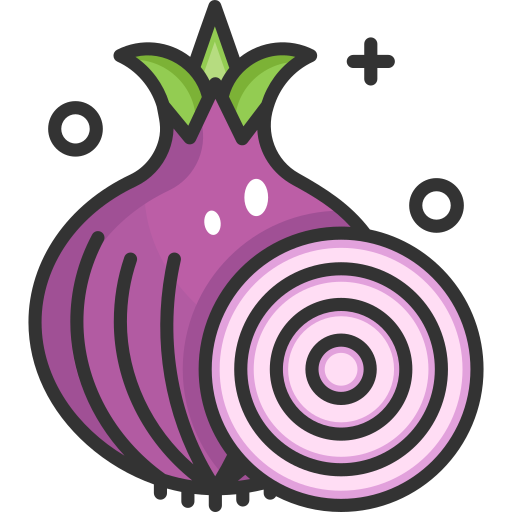
Parsnips are a sweet and starchy root vegetable, similar to a carrot, but with more calories, net carbs, fiber, and natural sugars. Parsnips are rich in the aforementioned fiber, as well as manganese and vitamins B5, B9, C, E, and K. They can enhance immunity and protect against infections through apigenin, quercetin, and kaempferol. Overall, parsnips support healthy digestion, immunity, and cardiovascular health, and are most nutritious when consumed raw.
Serving Size: 1 cup (133 g)
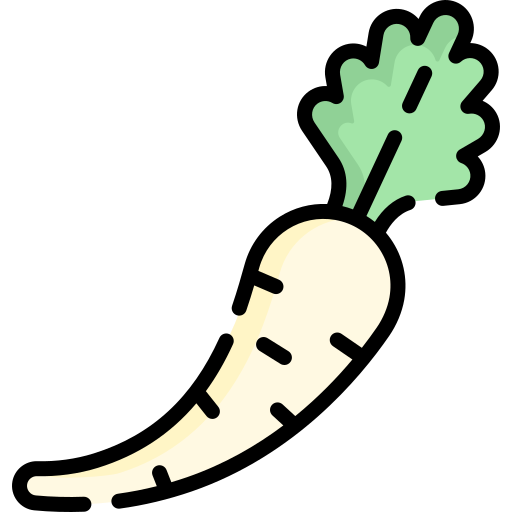
Green peas are one of the higher calorie vegetables, and are surprisingly protein rich per gram for a vegetable, but not per calorie. This is because peas also have more carbs compared to most vegetables, lowering its protein to calorie ratio. Still though, peas are a great source of fiber, thiamin, riboflavin, folate, vitamin B6, vitamin C, vitamin K, copper, manganese, and zinc. They support muscle health, aid in digestion, help steady blood sugar, and reduce inflammation.
Serving Size: 1 cup (145 g)
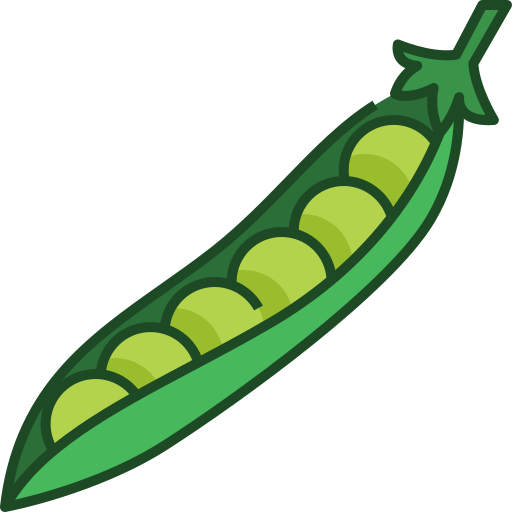
Plantains are the starchy vegetable brother of the banana, being higher in starch and lower in natural sugars. As they ripen and turn from green to yellow, the plantain develops more sugar and less starch, leading to a sweet and savory vegetable when cooked. Similar to bananas, plantains provide potassium, in addition to vitamin B6, vitamin C, and vitamin K. A side of plantains can offer steady energy, aid digestion, balance electrolytes, and support heart health. Typically, I'll air fry a plantain, like I did in my Marinated Chicken with Air Fried Plantains, though you can also make your own Air Fryer Plantain Chips for a healthy a snack.
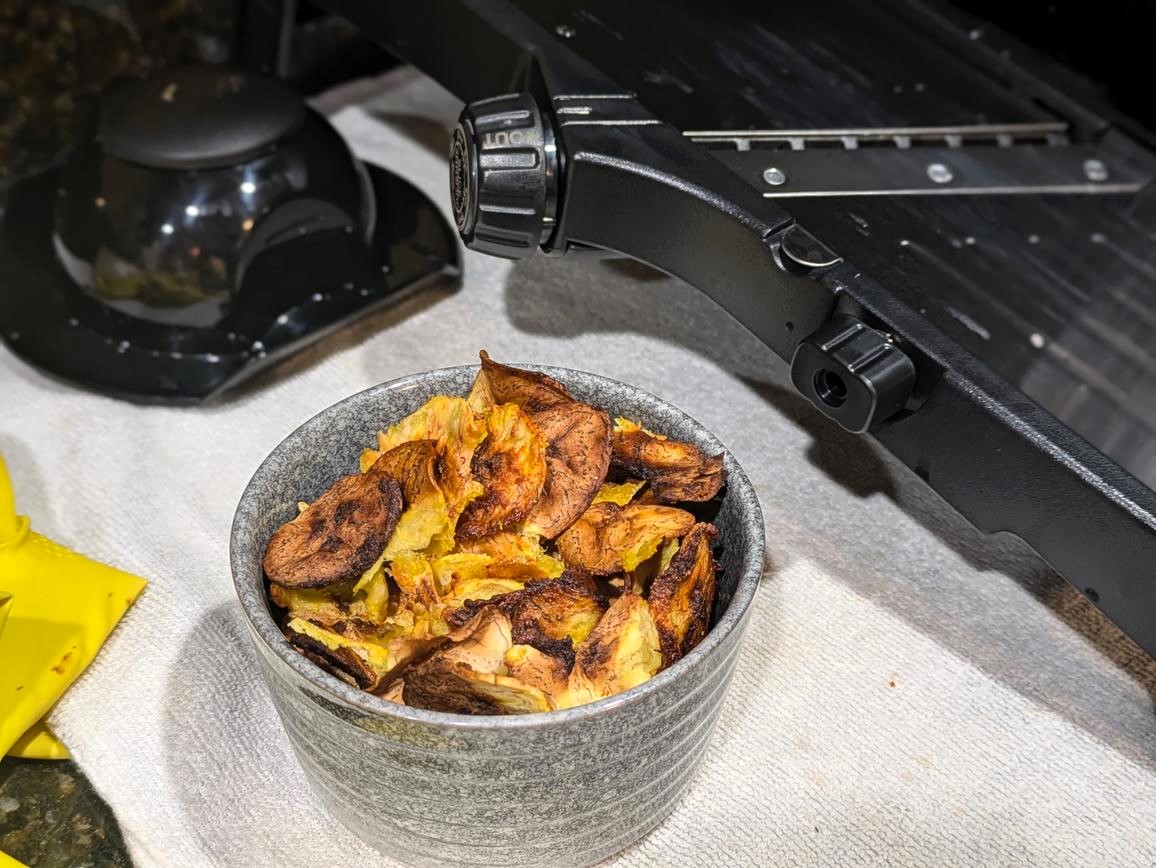
Serving Size: 1 cup (148 g)
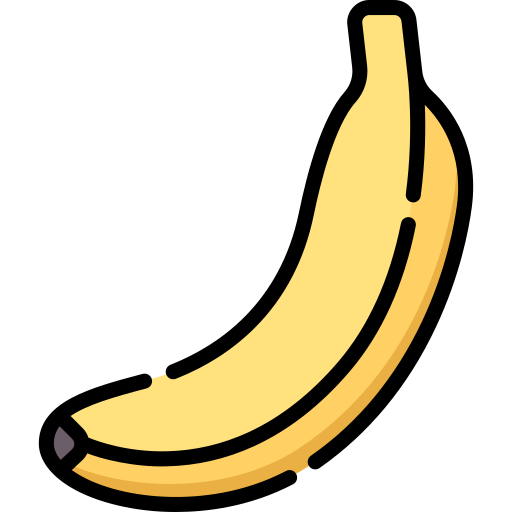
Potatoes are a fake vegetable, imo. While certainly very nutritious, the potato has a macro nutrient profile more similar of grains, being higher in calories and carbs. In the classic protein/carb/veggie dinner plate, potatoes, along with sweet potatoes, fill the roll of carbs (like rice or beans), not veggie (like broccoli or salad).
That doesn't mean potatoes aren't healthy; far from it. This starchy vegetable is rich in potassium, containing more than bananas. Additionally, potatoes contain both vitamin B6 and vitamin C, as well as a decent amount of fiber. Particularly resistant starch, which regulates blood sugar, boosts insulin sensitivity, and benefits your gut microbiome. Boiled potatoes are also the highest food on the Satiety Index, meaning that they're considered the most filling. Overall, potatoes protect against free radical damage, aid in nerve and muscle function, and promote satiety.
Unadulterated, potatoes are an underrated health food with a bad rap, probably because they're typically prepared in ways that destroy their nutrition. Stick to simple roasted or baked potatoes. Once they're deep fried, mixed with butter or cream, or covered in cheese, bacon, and sour cream, its nutritional benefit flies out the window.

I will probably die alone on the hill that potatoes are overrated (in taste). They're just kinda bland imo, and only typically taste good when they're smothered in butter, cream, cheese, or bacon, they're deep fried, or turned into junk snack food. I'm much more of a sweet potato fan honestly, though sometimes I do use standard potatoes. There's my (I'm Banned From) New England Clam Chowder, Indian Chicken and Potatoes, and (my favorite), Lower Oil Greek Lemon Potatoes.

Serving Size: 1 small (170 g)
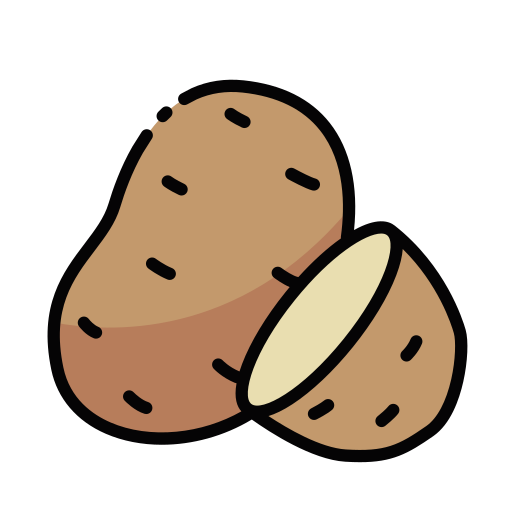
While technically a fruit, I feel like pumpkin more accurately qualifies as a vegetable culinarily. Pumpkin is very low calorie and packed with beta-carotene, the body's precursor to vitamin A. Per calorie, pumpkin is a moderate source of fiber, vitamin C, and copper. Pumpkin can promote healthy vision, support immunity, and aid digestion. Think of pumpkin as a less sweet but lower calorie version of a sweet potato.
In contrast to most other foods other this list, pumpkin is typically eaten in a sweet context. The most commonly consumed form of pumpkin is canned pumpkin puree, though you can make your own Homemade Pumpkin Puree using a sugar pumpkin. Using pumpkin puree, you can make delicious tasting breakfasts, snacks, and desserts perfect for the upcoming fall season.
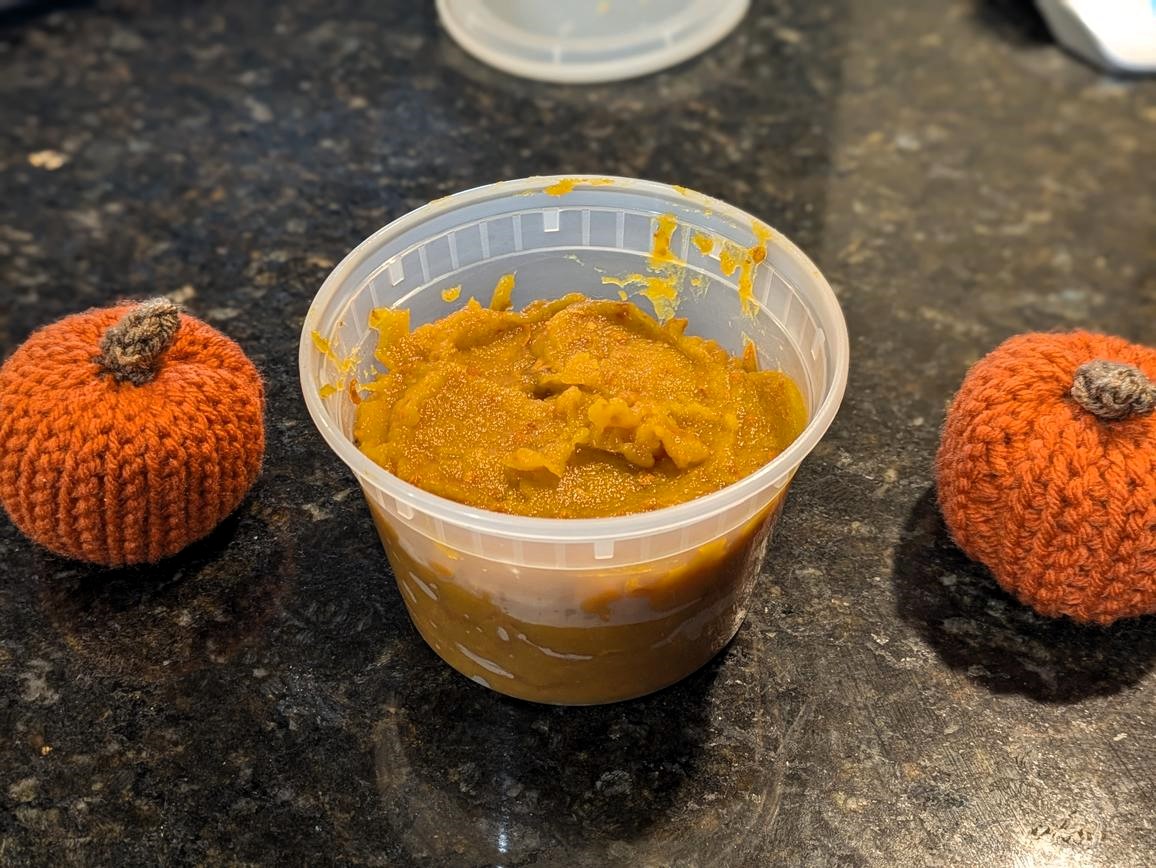
Similar to applesauce, mashed bananas, or sweet potato puree, pumpkin puree is great for keeping baked goods moist and rich (similar to butter or oil) for significantly fewer calories. Examples include my Frozen Pumpkin Cake, Pumpkin Protein Pancakes, Protein Pumpkin Loaf, Perfect Protein Packed Pumpkin Pie, and Pumpkin Pie Protein Overnight Oats.

Serving Size: 1 cup (116 g)

Radicchio is a famously bitter leafy Italian vegetable that's full of antioxidants from it's deep purple color. Radicchio is low in calories, and provices decent amounts of folate, vitamin C, vitamin E, and copper. Most notably, radicchio is an extremely rich source of vitamin K. It supports blood clotting, digestion, and red blood cell formation, while providing anti-inflammatory benefits.
Serving Size: 1 cup (40 g)

Radishes may sound like radicchio, but they are in no ways related. Radishes are a crunchy, low calorie root vegetable, similar to beets and carrots. Outside of some vitamin C though, radishes don't have much to offer in terms of micronutrients. Still though, they're can promote hydration through their water content and digestion through their fiber content. Radishes do help the liver and kidneys detoxify though, as they are a natural antifungal.
Serving Size: 1 cup (116 g)
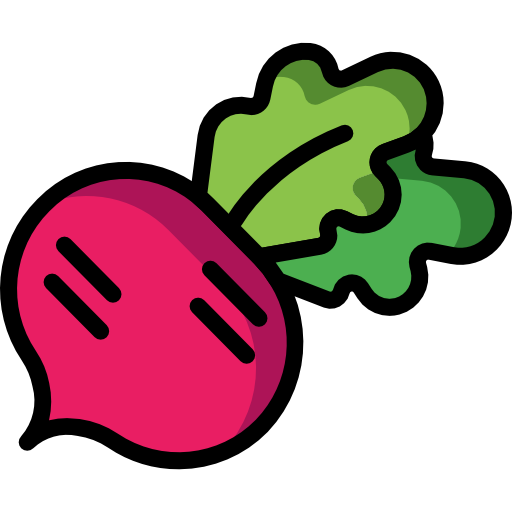
Spaghetti squash is a unique vegetable, as it has a stringy, pasta like texture when cooked. It's a great low calorie substitute for pasta with a good source of fiber, aiding in blood sugar management and lowering inflammation. A 1 cup (101 g) serving of spaghetti squash contains only 31 calories, compared to a 2 oz (56 g) serving of refined white pasta with 210 calories.
Spaghetti squash is more than just a pasta alternative though. It's midly sweet, especially when roasted, and makes a delicious side dish, either with a sauce or a dry rub of spices. I typically roast it, but you can also cook spaghetti squash in a slow cooker or pressure cooker; check out my Spaghetti Squash Cooked 3 Ways.
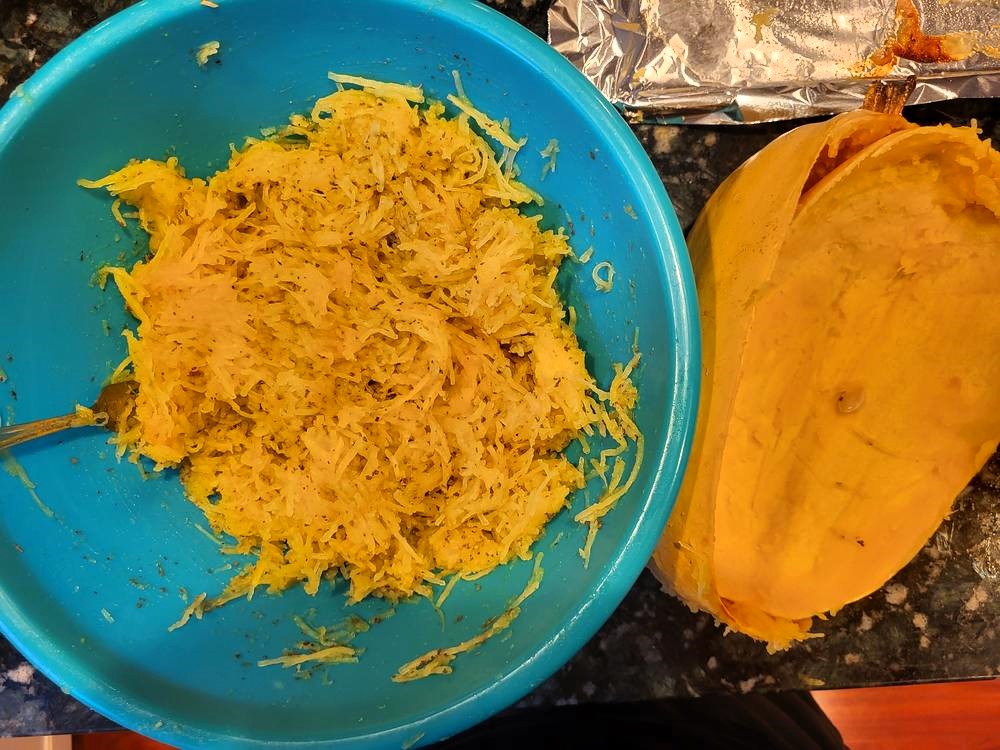
Spaghetti squash is great topped with any sort of pasta sauce, such as Simple Past Sauce, Healthier Clam Sauce, Lightened Extra Virgin Olive Oil Pesto, or Dutch Oven Bolognese Sauce. Or check out my 'Mac' & 'Cheese' for a vegan mac and cheese recipe using spaghetti squash instead of pasta.
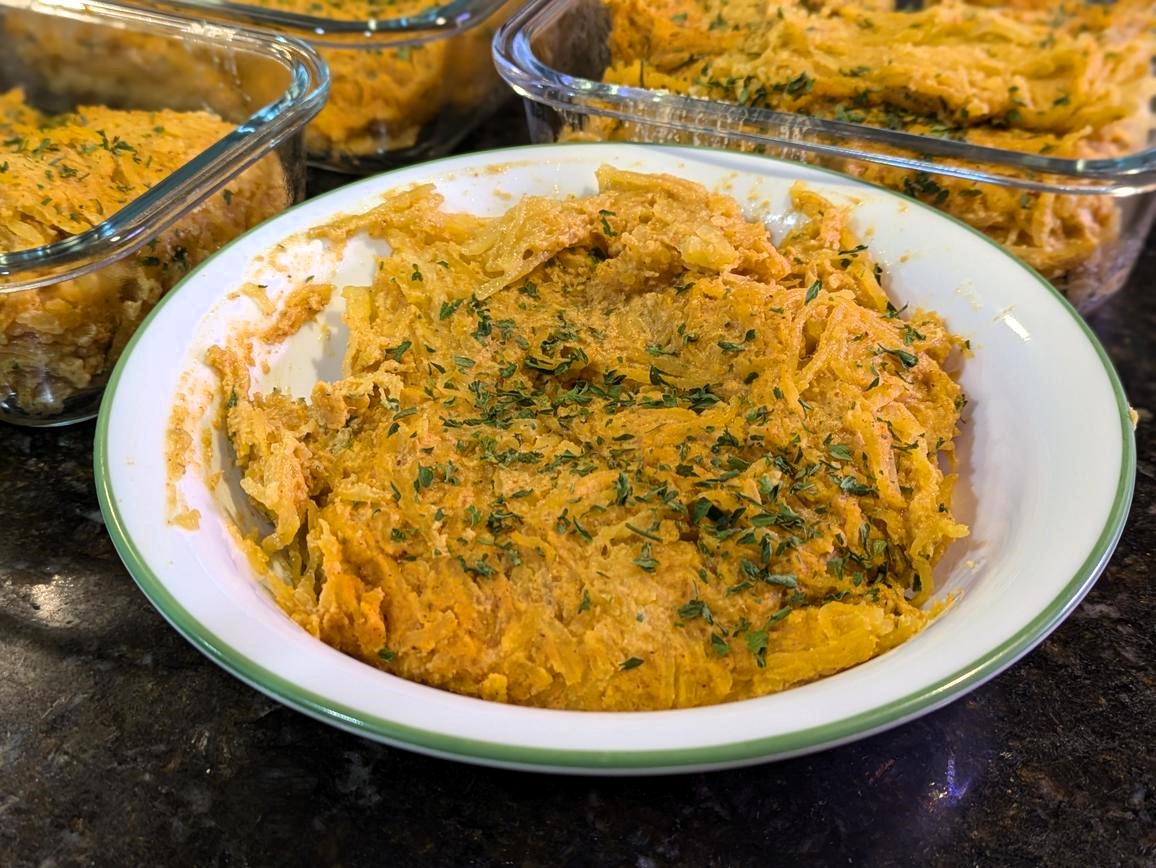
Serving Size: 1 cup (101 g)

Ah, the Popeye classic. Spinach is renound for being high in iron, but not as much as you've been lead to believe. That's because spinach, and all plant based sources of iron, are what is known as 'non-heme' iron, which has a significantly lower absorption rate compare to 'heme' iron (found in animal sourced foods). Still though, spinach is a good additional source of iron to your diet, aiding in oxygen transport, ATP production, and hemoglobin and myoglobin creation.
Moreover, spinach is abundant in in a myriad of nutrients. These include fiber, vitamin A, riboflavin, vitamin B6, folate, vitamin C, vitamin E, vitamin K, copper, magnesium, manganese, and potassium. Spinach also supports eye health through its lutein, zeaxanthin, and beta-carotene. This extremely nutritious leafy green vegetable supports blood coagulation, blood health and strength, red blood cell formation, immune function, muscle and nerve function, DNA synthesis, oxygen transport, and hormone regulation.
Frozen chopped spinach is a staple in my fridge for how easy it is to sautee and toss into nearly any dish. My most common use of spinach is in my morning eggs. Such recipes include Spinach & Mushroom Scrambled Eggs, A Complete Vegetarian Meal, and Spinach and Onion Frittata. Another breakfast use for spinach is in a Green Hemp Smoothie.
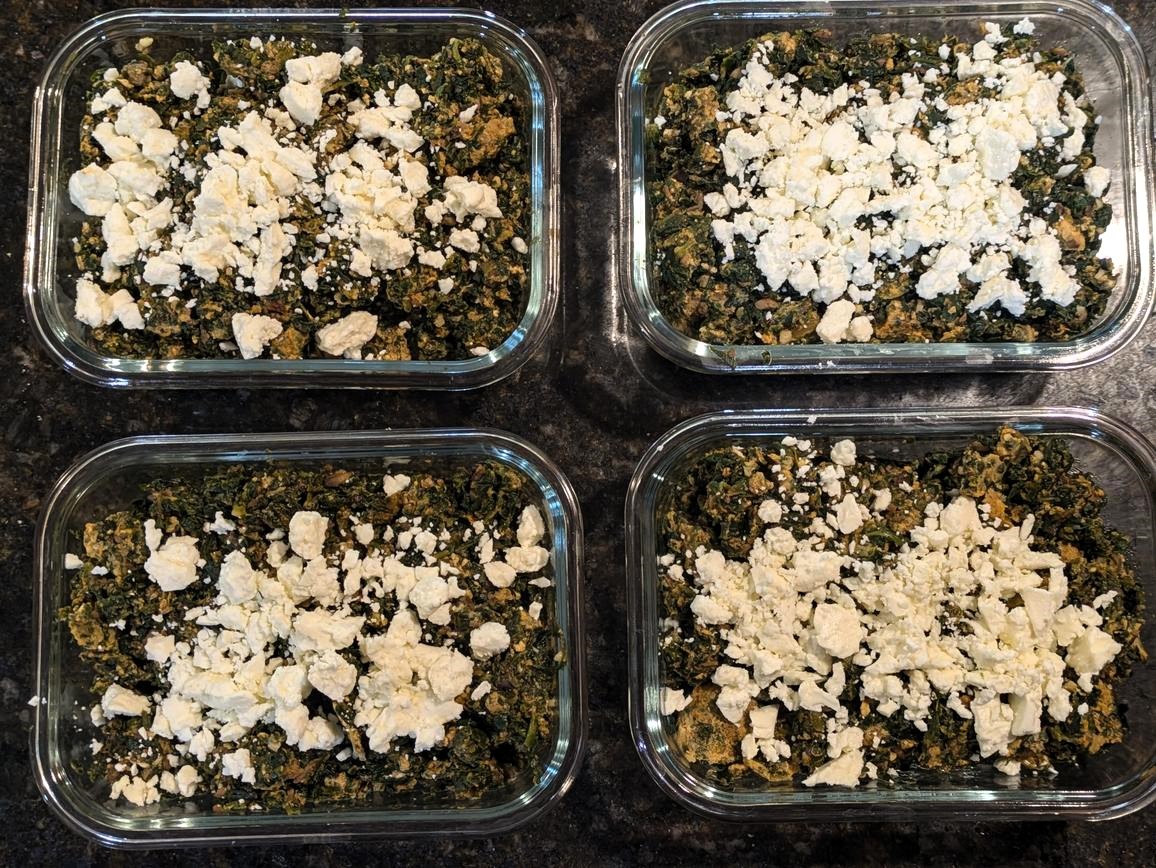
As for dinner, spinach is common in many of my dishes. Some of my favorites are No Cream Chicken Florentine, Lemon Feta Chicken Bowls, Shrimp Fra Diavolo con Spinach, Lebanese Riced Cauliflower Casserole, and The Iron Bowl. Spinach also makes a great side dish, such as in my Spinach & Onion Vegetable Medley, Mediterranean Pasta Salad, and Mediterranean Sweet Potato Salad.

I also like to use spinach as a cheaper basil alternative in pesto. Examples include my Creamy Pesto Hummus, Avocado Pesto, Lightened Extra Virgin Olive Oil Pesto, and Creamy Pesto Dip. Or I have some dishes with specific spinach based pesto recipes, such as Tomato Pesto Turkey Pitas, Sun Dried Tomato Pasta Salad and Pesto Goat Cheese Mac & Cheese. And who doesn't love spinach artichoke dip, so be sure to make my Lightened Up Spinach Artichoke Dip.
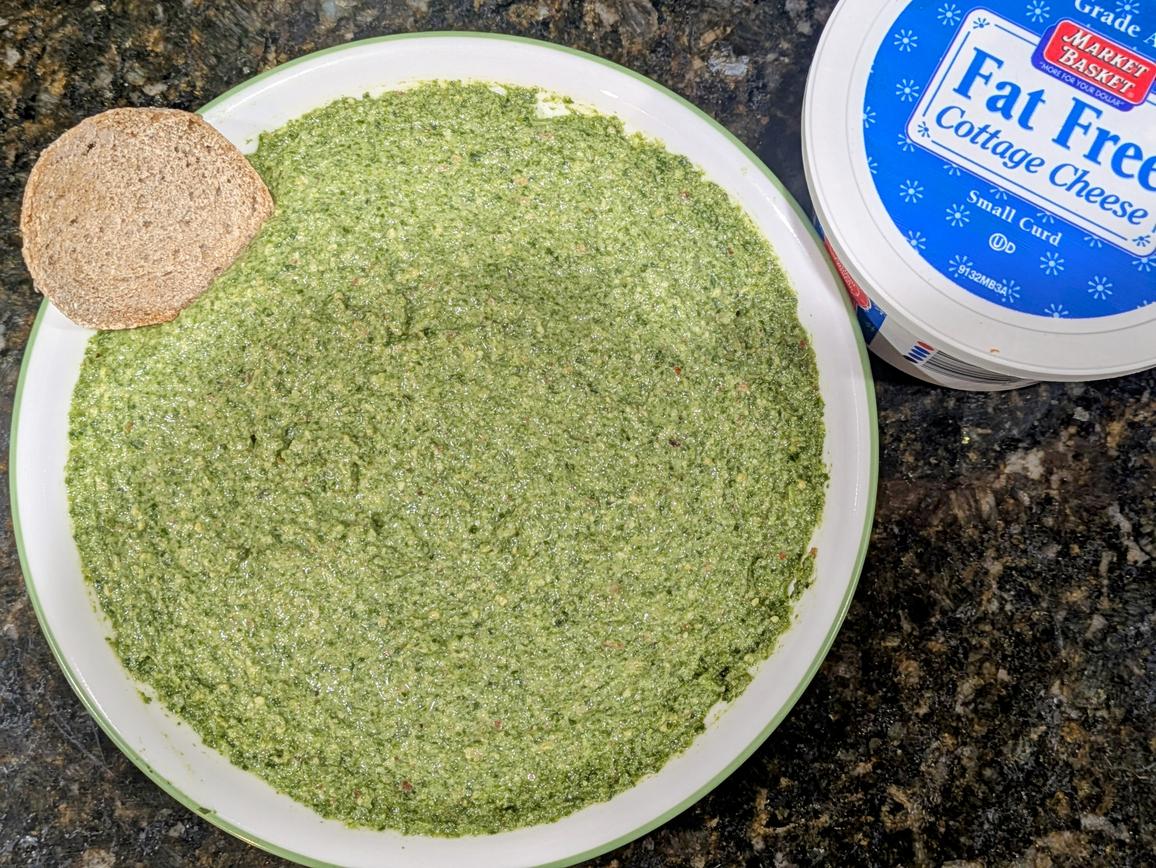
Serving Size: 1 cup (30 g)
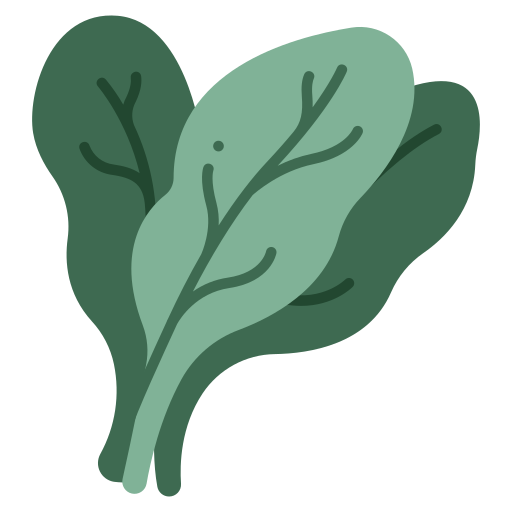
Like potatoes, sweet potatoes are less of vegetable and more of a carb. Compared to other vegetables, sweet potatoes are high in calories and net carbs. Again, this doesn't make sweet potatoes unhealthy; far from it. Sweet potatoes are the best source per gram of beta-carotene, which the body converts into vitamin A, benefitting vision and skin health. Yes, more beta-carotene than carrots, you know, the thing carotenoids are named after (go figure).
They're a good source of fiber, magnesium, and potassium, which helps regulate blood sugar, balance electrolytes, and support immunity. Like potatoes, sweet potatoes are high in resistant starch, which benefits gut bacteria. Sweet potatoes just moreso fill the role of a rice and pasta substitute, not one for kale or broccoli.
Sweet potatoes are an S tier food for both taste and nutrition. I like them roasted, baked, or even air fried into homemade healthy french fries. Examples of recipes including sweet potato are the following:

Most commonly, sweet potatoes are consumed in savory dishes, but it does find a myriad of uses in sweet goods as well in the form of sweet potato puree. You can either buy it canned, or make your own Roasted Sweet Potato Puree. Examples with sweet potato puree include:
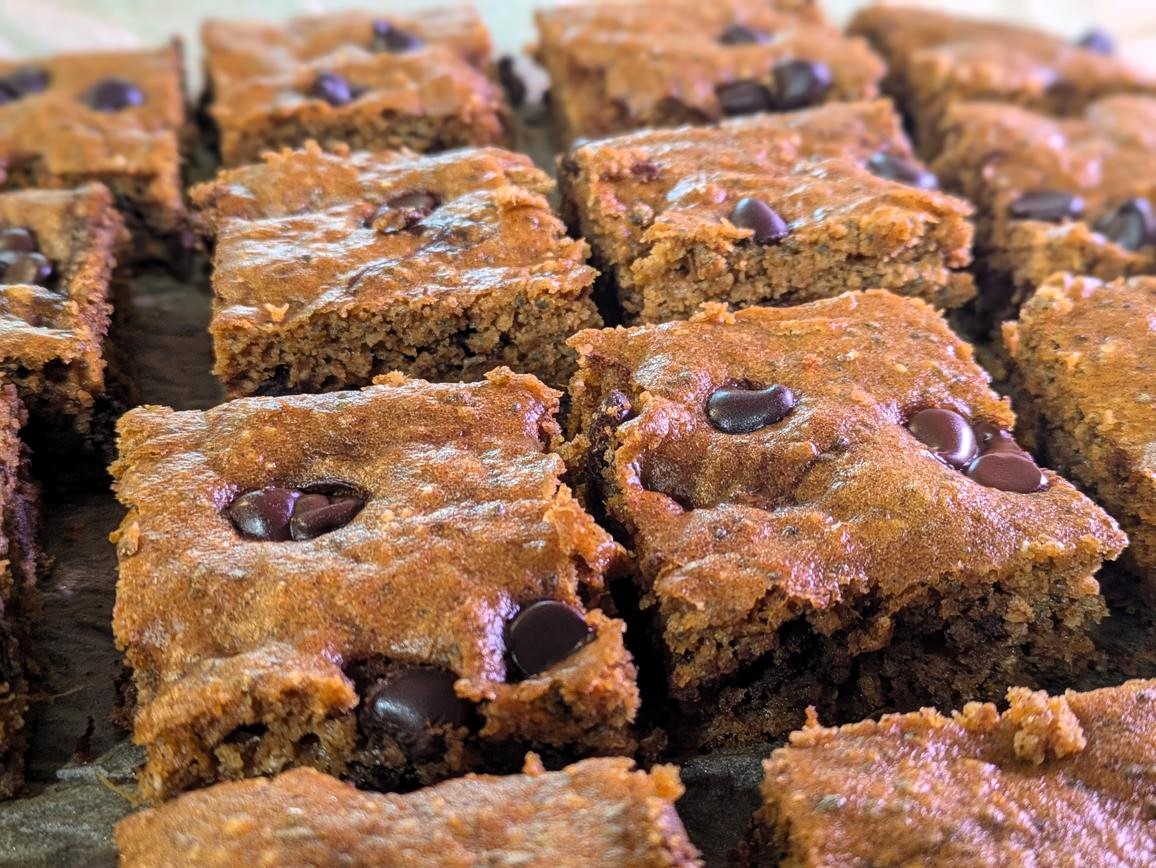
Serving Size: 1 small (130 g)
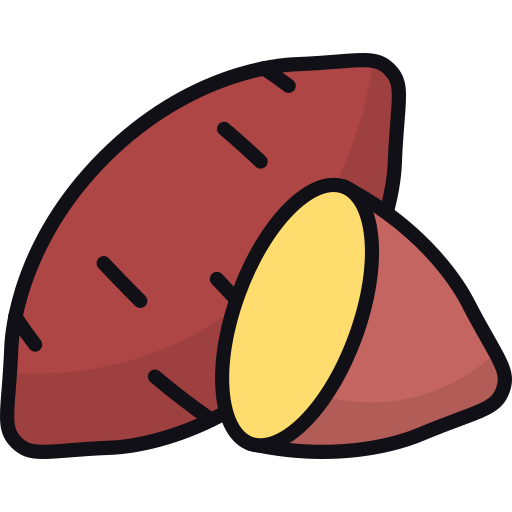
Swiss chard doesn't come from Switzerland; it's actually from Sicily. Swiss chard is a colorful leavy vegetable, coming in green, red, and rainbow varieties. Chard is very low in calories, where 1 cup (36 g) contains a mere 7 calories. It's high in vitamin A, particularly the red varieties, helping to support vision and reproduction health through lutein, zeaxanthin, and beta-carotene.
It's vitamin C and vitamin E contents support collagen production and skin health. Swiss chard is one of the best vegetable sources of magnesium, which can help improve insulin sensitivity and prevent muscle cramps. It contains the antioxidants rutin, kaemferol, vitexin, and quercetin, which are all anti-inflammatory and anti-cancer. Lastly, and most abundant of all, swiss chard is one of the highest possible sources of vitamin K, aiding in bone health, cell growth, and heart health.
Serving Size: 1 cup (36 g)
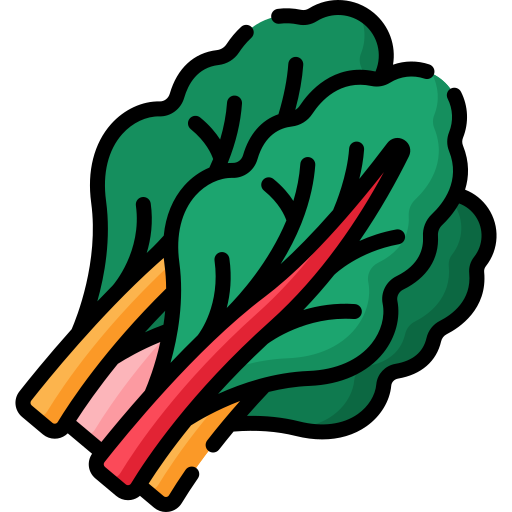
Tomatoes are technically fruits, but are typically eaten as a vegetables. Tomatoes are renound for their high concentrations of lycopene, which may lower your risk of cancer (particularly prostate cancer) and improve heart health. Outside of watermelon and guava, no other food really comes close to the lycopene content of tomatoes. In addition, tomatoes provide vitamin C, which aids in the absorption of iron.

Tomatoes are one of the most versatile ingredients in the kitchen. They can be consumed both raw (typically in a salad) or cooked. They come in a myriad of canned forms, such as diced tomatoed, crushed tomatoes, and tomato paste. And then there's sun dried tomatoes as well, not to mention all the different uses for a tomato sauce.
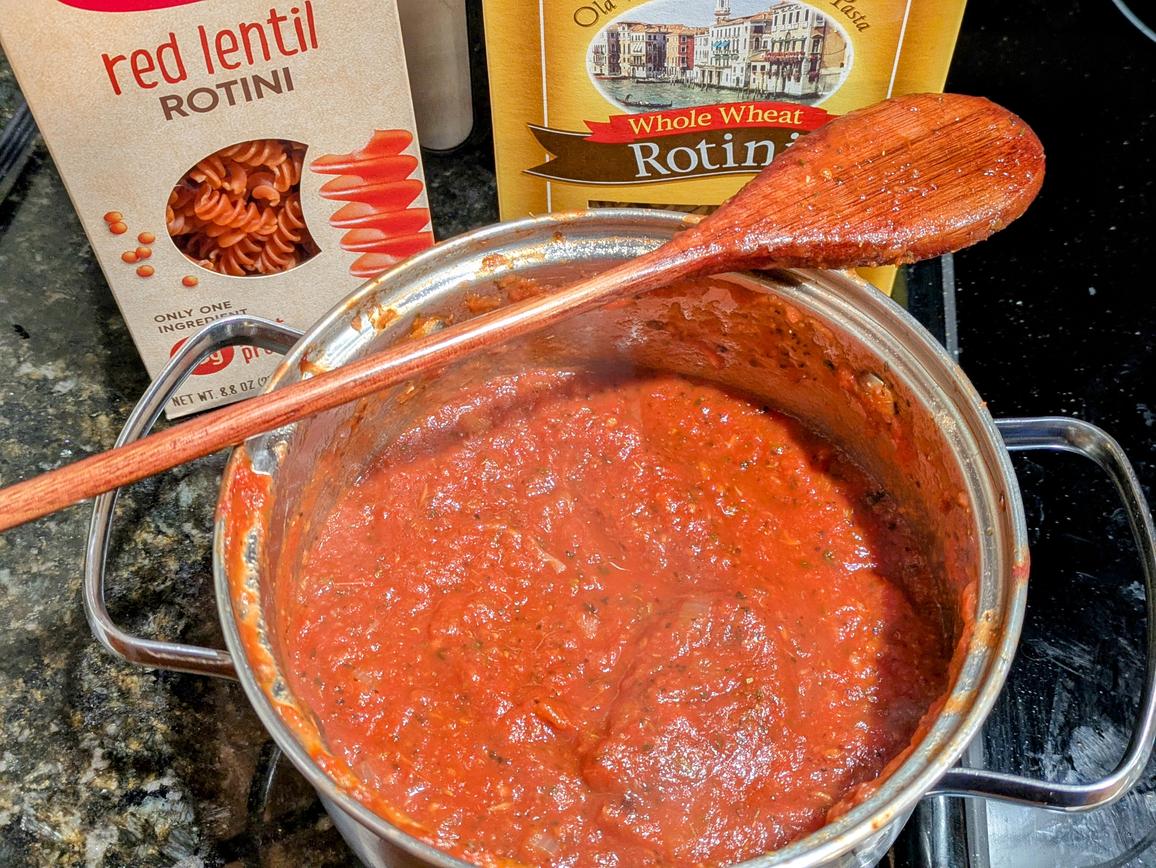
Some raw tomatoes can really add some great freshness to a dish. Examples are in my Mediterranean Pasta Salad, Salad Base For Your Fridge, Mediterranean Sweet Potato Salad, Greek Salad with Chicken, Mediterranean 3 Bean Salad, Grilled Eggplant and Chickpea Salad, Chopped Burger Bowl with Sweet Potatoes, Italian Bruschetta, and Versatile Avocado Toast.

When you start getting into cooked tomatoes, again both fresh and canned work great here too. Some dishes with cooked tomatoes include Tomato Chickpea Wraps, Penne and Meat Casserole Bake, Baked Rice and Beans with Vegetables, Balsamic Caprese Chicken with Roasted Artichokes, No Added Sugar Baked Beans, Tomato and Bean Couscous, Spaghetti Tacos with Zoodles, and Cauliflower Mash Shepard's Pie.

Plus, tomatoes are a great base for sauces and dips. Some examples are my Simple Pasta Sauce, Five Minute Salsa, Pickle Ketchup with Hot Honey, Tomato Paste-o, Fra Diavolo Sauce, Date Sweetened Ketchup, Simple Pico de Gallo, Dutch Oven Bolognese Sauce, and Unsweetened BBQ Sauce. Moreover, my Tomato Pesto Turkey Pitas, Sun Dried Tomato Pasta Salad, Turkey Oatmeal Bolognese, and Whole Wheat Deep Dish Pizza Pie all feature their own sauce recipes with various forms of tomatoes.
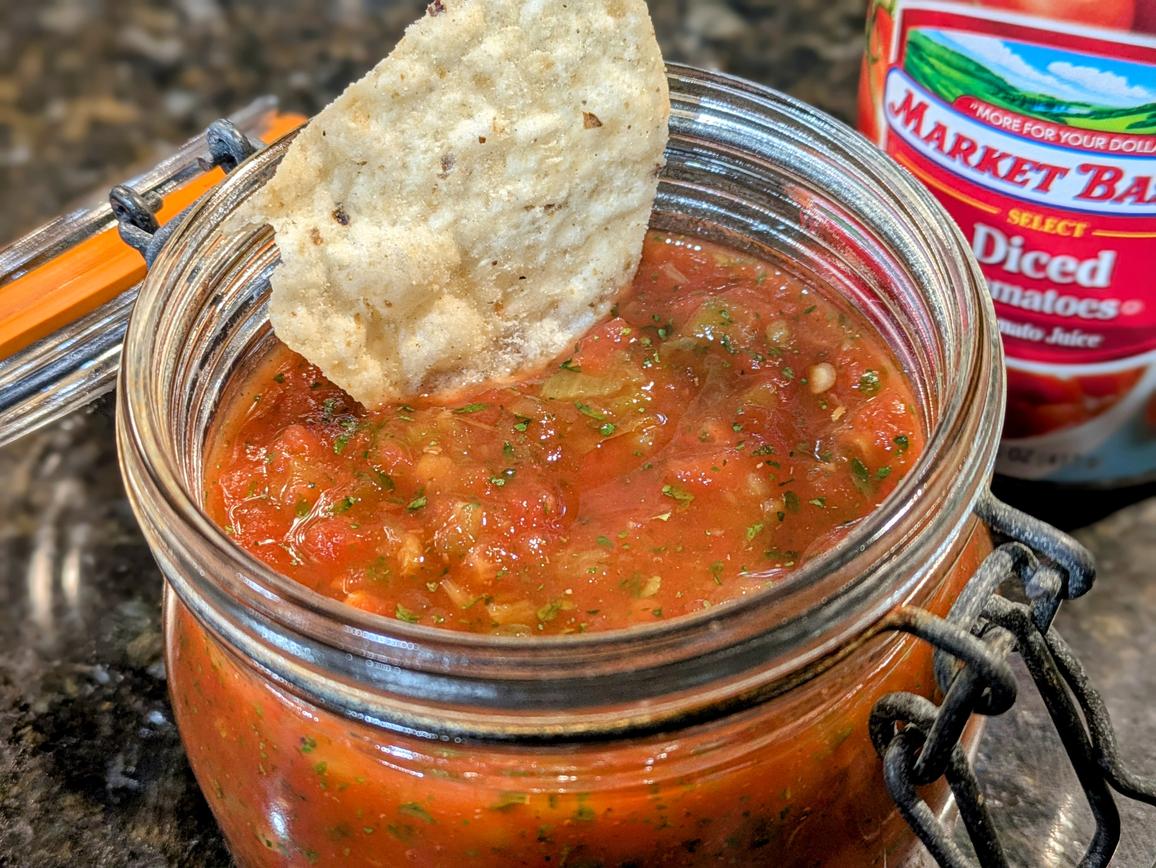
My most used case for tomatoes though is probably in stews. Some delicious examples are Low FODMAP Chili, No Butter Chicken with Quinoa, Dead Simple Chili, Stewed Chicken Cacciatore, Slow Cooker Chili, Simple Ratatouille Stew, High Protein Peanut Butter Chili, Crockpot Chicken Stew, and 24 Hour Chili.

Serving Size: 1 cup (152 g)

Turnips, like carrots, beets and parsnips, are root vegetables. They contain antioxidants like vitamin C, anthocyanins, and glucosinolates, which help reduce inflammation. Additionally, turnips contain fiber, promoting digestive health and blood sugar management, while also providing anti-cancer properties.
Serving Size: 1 cup (133 g)
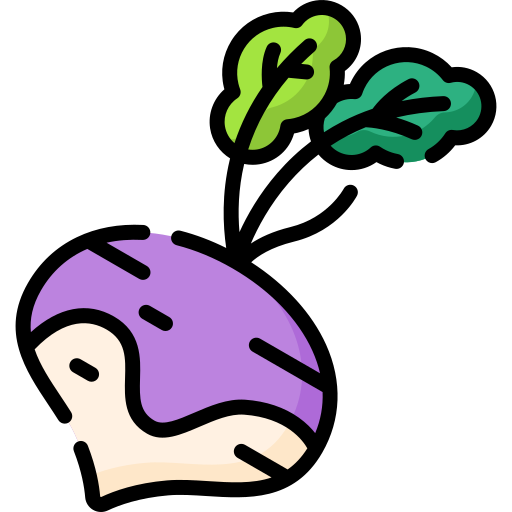
Mushrooms aren't technically a vegetable, which makes them have a very unique micro nutrient profile. Mushrooms uniquely offer some vitamin D, promoting bone health and mood regulation. Mushrooms have a high protein to calorie ratio, containing 3.1 g of protein and 22 calories per 100 g. Moreover, mushrooms are also considered to be a complete protein, meaning they contain significant amounts of all nine essential amino acids.
Mushrooms are the richest 'vegetable' in B vitamins, notably B2, B3, and B5. They're basically the only vegan source of vitamin B12, though values are no where close to what's found in meat, eggs, fish, and dairy. Finally, mushrooms offer a significant quantity of both selenium and copper. They support immune function and brain health, and may help reduce inflammation.
While I've never been the biggest fan of mushrooms, I cannot deny just how nutrient dense they are. I try to work them into my diet when I can because of how good they are for you, but I know I'm not alone in disliking their squishy texture. Instead, I tend to pulse my mushrooms in the food processor, and essentially make 'mushroom rice'. Some recipes include my Spinach & Mushroom Scrambled Eggs, Tomato Pesto Turkey Pitas, and High Protein Veggie Ground, which all incorporate mushrooms deep into the dish, where you cannot tell that they're there.
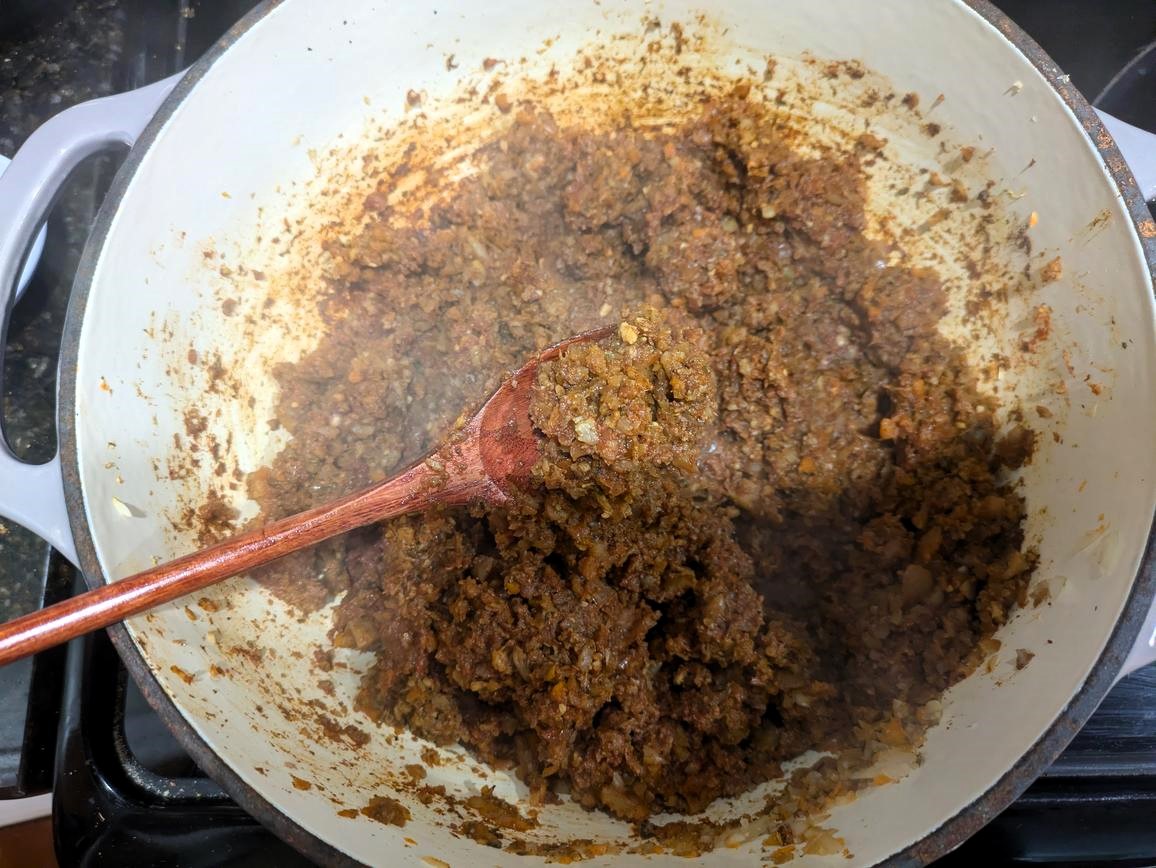
Serving Size: 1 cup (70 g)

Yellow squash is a mild summer squash with some vitamin C and copper. Being low in calories with a moderate amount of fiber, yellow squash promotes digestive health, supports metabolism, and is a light, filling food. Yellow squash are essentially just yellow zucchini, containing nearly identical amounts of both macro and micro nutrients.
I only have two recipes specifically calling for yellow squash, those being my Nontraditional Kung Pao Chicken and Simple Ratatouille Stew. Though you can replace yellow squash with zucchini (or vise versa) anywhere. Make zucchini fries or zoodles with yellow squash instead!
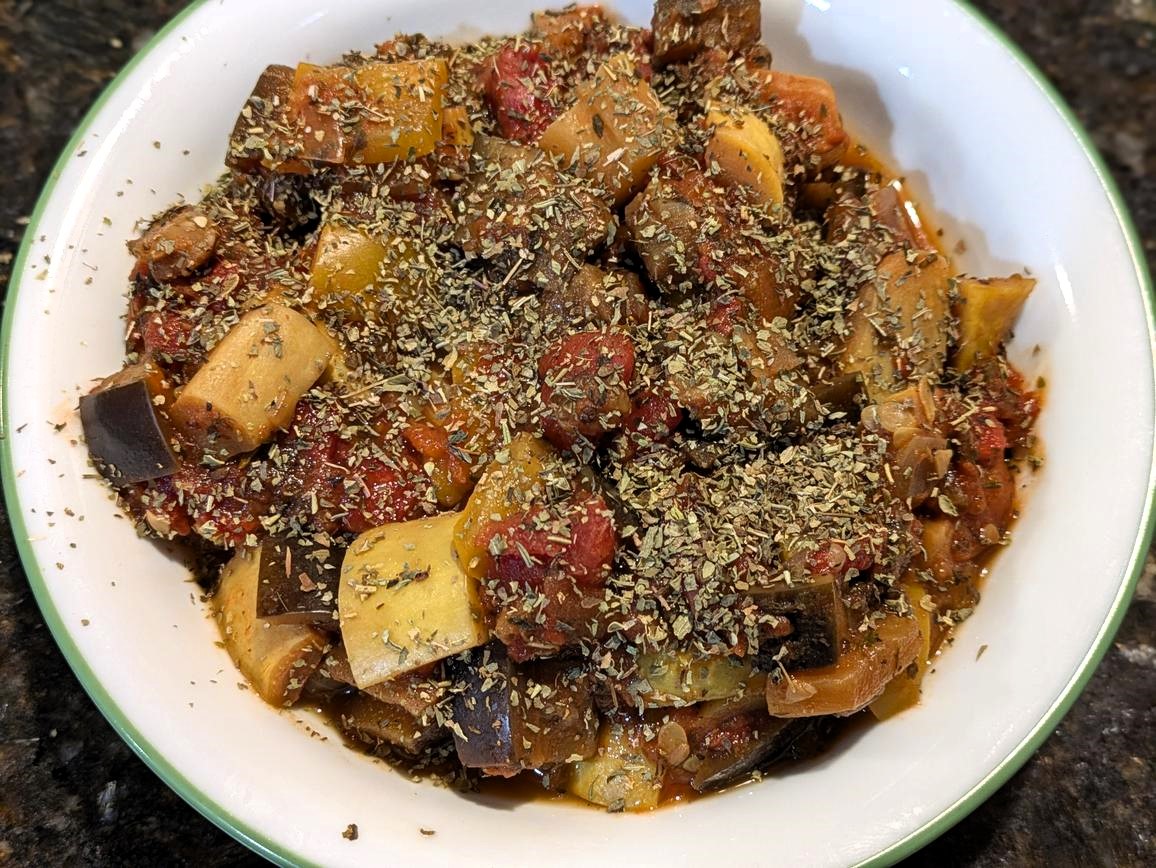
Serving Size: 1 cup (115 g)
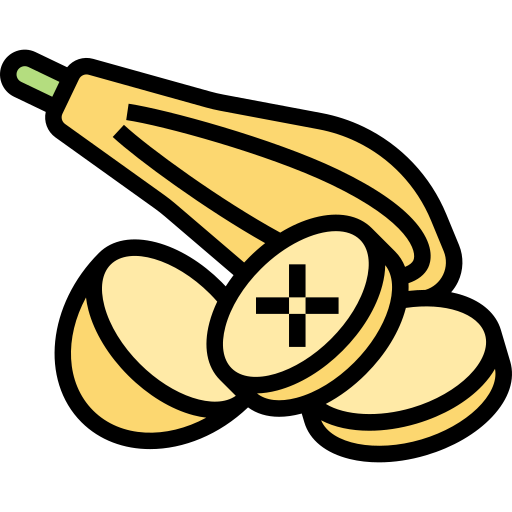
Zucchini is a mild summer squash with some vitamin C and copper. Being low in calories with a moderate amount of fiber, zucchini promotes digestive health, supports metabolism, and is a light, filling food. If you think you just got a hit of déjà vu, then you'd be right. Zucchini and yellow squash are virtually the same food, just the former is green and the latter is yellow.
Like how cauliflower is often used as a low carb substitute for mashed potatoes and rice, zucchini is often used as a low carb substitute for pasta. Of course, I'm talking about zoodles, so check out my Spaghetti Tacos with Zoodles and Zoodles and Meatballs for some zoodle recipes. Some more zucchini recipes include my Cauliflower Mash Shepard's Pie, Parmesan Crusted Zucchini Wedges, and Simple Ratatouille Stew.
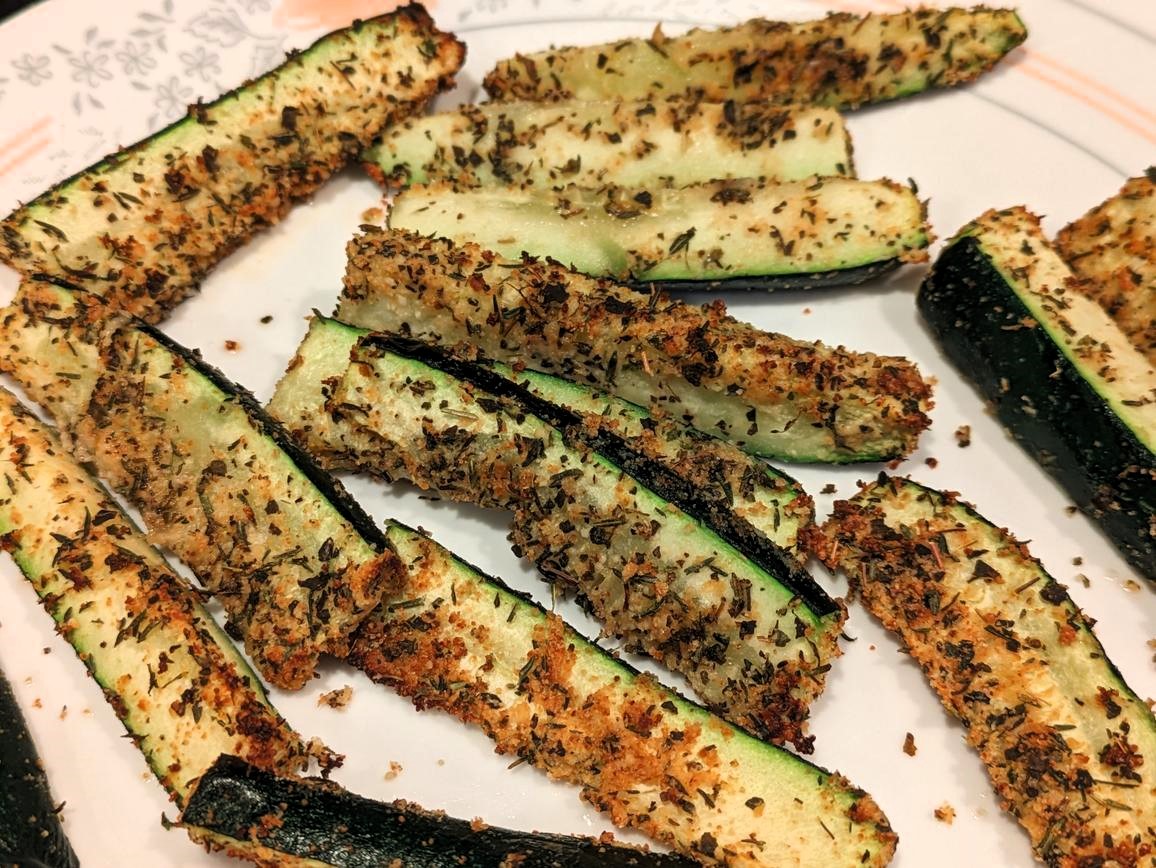
Serving Size: 1 cup (113 g)

Nutritional Comparison
Scroll to the right to read information about every variation

References
This post may contain affiliate links
Vegetables are some of the most nutrient-dense foods available. They're generally low in calories, net carbs, fat, and protein, while being high in fiber, which aids in proper digestion, provides satiety, stabilizes blood sugar, and reduces inflammation.
While B vitamins are found predominantly in meat and whole grains, veggies tend to have a significant quantity of vitamins C and K, while also being great sources of many minerals, including copper, magnesium, and potassium.
What doesn't show up on a nutrition facts label is a vegetables phytochemical content, which are beneficial plant compounds abundantly found in vegetables. phytochemicals are represented by food color, and they are shown to prevent DNA damage, reduce risk of heart disease, regulate hormones, fight free radicals, and strengthen your immune system. Eating a wide variety of vegetables ensures you cover a broad spectrum of nutrients for overall health.


Other Posts in this Series
- Let's Meet The Meats
- I'm Nuts For Nuts
- I See Seeds In Your Future
- Beans Beans The Musical Fruit
- Going Bananas For Bananas
- Lettuce Turnip The Beet
- I'm Hooked On Fish
- A Grain Of Truth
- I'm Dying For Dairy


Contents
- Acorn Squash
- Artichoke
- Arugula
- Asparagus
- Beet
- Beet Greens
- Bell Pepper
- Bok Choy
- Broccoli
- Brussel Sprout
- Butternut Squash
- Cabbage
- Carrot
- Cauliflower
- Celery
- Collard Green
- Cucumber
- Eggplant
- Fennel
- Garlic
- Ginger
- Green Bean
- Kale
- Kohlrabi
- Lettuce
- Mustard Green
- Onion
- Parsnip
- Pea
- Plantain
- Potato
- Pumpkin
- Radicchio
- Radish
- Spaghetti Squash
- Spinach (Fresh)
- Sweet Potato
- Swiss Chard
- Tomato
- Turnip
- White Mushroom
- Yellow Squash
- Zucchini
- Nutritional Comparison


Acorn squash is a mildly sweet winter squash that provides fiber, thiamin, vitamin C, magnesium, and potassium. Its fiber helps regulate blood sugar and digestion, while antioxidants support skin and immune health. For a simple recipe with acorn squash, check out my Roasted Italian Chicken Breast and Acorn Squash.

------------------------------------------
Calories: 56
------------------------------------------
Total Fat: 0.1g (0 %)
Total Carbohydrate: 14.6g (6 %)
Fiber: 2.1g (7 %)
Net Carbs: 12.5g
Protein: 1.1g (3 %)
------------------------------------------
------------------------------------------
Vitamin B9 (Folate): 23.8mcg (6 %)
Vitamin C: 15.4mg (17 %)
Vitamin K: 0.0mcg (0 %)
------------------------------------------
Calcium: 46mg (4 %)
Iron: 0.98mg (6 %)
Magnesium: 45mg (11 %)
Potassium: 486mg (10 %)

Artichokes are super rich in fiber, containing 6 g of fiber per 100 g. This fiber comes the in form of inulin, which acts as a prebiotic, regulating the digestive sysyem. Artichokes are also high in antioxidants, along with magnesium, folate, and vitamin K. They promote support liver function, may help lower cholesterol, and even increase the production of bile, which removes toxic wastes from the body. I normally just roast them, like I did in my Balsamic Caprese Chicken with Roasted Artichokes, but you can also make Lightened Up Spinach Artichoke Dip or put them on top of a Greek Salad.

------------------------------------------
Calories: 80
------------------------------------------
Total Fat: 0.5g (0 %)
Total Carbohydrate: 17.9g (6 %)
Fiber: 8.6g (30 %)
Net Carbs: 9.3g
Protein: 4.3g (9 %)
------------------------------------------
------------------------------------------
Vitamin B9 (Folate): 133.5mcg (33 %)
Vitamin C: 11.1mg (12 %)
Vitamin K: 22.2mcg (18 %)
------------------------------------------
Calcium: 32mg (3 %)
Iron: 0.92mg (5 %)
Magnesium: 63mg (15 %)
Potassium: 429mg (9 %)

Arugula, also known as rocket, is a peppery leafy green that’s rich in vitamin A, folate, vitamin C, vitamin K, calcium, magnesium, and manganese. Arugula also contains beneficial plant compounds that support bone strength, eye health, and provide protective antioxidants through glucosinolates. Arugula is also (just barely) a high protein vegetable (as is asparagus), containing 2.6 g of protein and 25 calories per 100 g.
------------------------------------------
Calories: 5
------------------------------------------
Total Fat: 0.1g (0 %)
Total Carbohydrate: 0.7g (0 %)
Fiber: 0.3g (1 %)
Net Carbs: 0.4g
Protein: 0.5g (1 %)
------------------------------------------
------------------------------------------
Vitamin B9 (Folate): 19.4mcg (5 %)
Vitamin C: 3.0mg (3 %)
Vitamin K: 21.7mcg (18 %)
------------------------------------------
Calcium: 32mg (2 %)
Iron: 0.29mg (2 %)
Magnesium: 9mg (2 %)
Potassium: 74mg (2 %)

Asparagus is notorious for making your pee smell, but what benefits does it have? For starters, it's low calorie while offering many B vitamins. These include thiamin, riboflavin, and folate, which helps form DNA and RNA. Additionally, asparagus contains a significant amount of vitamin K, copper, and iron. Additionally, asparagus contains the antioxidants quercetin and kaempferol, which can lower blood pressure and reduce inflammation, as well as protodioscin, which can increase libido and decrease the negative effects of stress. It supports heart and ovarian health, aids healthy pregnancy through folate, and may act as a natural diuretic (hence the smelly pee). Asparagus is also (just barely) a protein vegetable (as is arugula), containing 2.2 g of protein and 20 calories per 100 g.
------------------------------------------
Calories: 27
------------------------------------------
Total Fat: 0.2g (0 %)
Total Carbohydrate: 5.2g (1 %)
Fiber: 2.8g (11 %)
Net Carbs: 2.4g
Protein: 2.9g (5 %)
------------------------------------------
------------------------------------------
Vitamin B9 (Folate): 69.7mcg (17 %)
Vitamin C: 7.5mg (8 %)
Vitamin K: 55.7mcg (47 %)
------------------------------------------
Calcium: 32mg (3 %)
Iron: 2.87mg (16 %)
Magnesium: 19mg (4 %)
Potassium: 271mg (5 %)

Beets are naturally sweet root vegetables, especially when roasted, as they contain 6.8 g of natural sugars per 100 g. They're quite rich in folate and manganese, and they contain almost twice as much potassium than bananas per calorie. The best part about beets is their high nitrate content, which improves blood flow and endurance, as well as cognition and post workout recovery. Their deep purple color is the source of many antioxidants, which support detoxification and heart health. It's because of this that beets are often considered a 'superfood', so check out my Date Night Superfood Bowls and my Creamy Roasted Beet Hummus.


------------------------------------------
Calories: 58
------------------------------------------
Total Fat: 0.2g (0 %)
Total Carbohydrate: 13.0g (4 %)
Fiber: 3.8g (14 %)
Net Carbs: 9.2g
Protein: 2.2g (4 %)
------------------------------------------
------------------------------------------
Vitamin B9 (Folate): 148.2mcg (37 %)
Vitamin C: 6.7mg (7 %)
Vitamin K: 0.3mcg (0 %)
------------------------------------------
Calcium: 22mg (1 %)
Iron: 1.09mg (5 %)
Magnesium: 31mg (7 %)
Potassium: 442mg (10 %)

Beet greens are the purple and green colored leaves that grow from beets. They're absolutely packed with vitamin K, containing 152.0 mcg (127 %) in just 1 cup (38 g), supporting blood clotting. Beet greens are also rich in vitamin A, particularly the carotenoids lutein and zeaxanthin, which benefit eye health by combatting macular degeneration. Moreover, beet greens are a rich source of vitamin C, which has anti-inflammatory effects and aids in tissue repair. Finally, beet greens contain gluconsinolates, which are shown to be anti-cancer, anti-microbial, and anti-inflammatory.
------------------------------------------
Calories: 8
------------------------------------------
Total Fat: 0.0g (0 %)
Total Carbohydrate: 1.6g (1 %)
Fiber: 1.4g (5 %)
Net Carbs: 0.2g
Protein: 0.8g (2 %)
------------------------------------------
------------------------------------------
Vitamin B9 (Folate): 5.7mcg (2 %)
Vitamin C: 11.4mg (13 %)
Vitamin K: 152.0mcg (127 %)
------------------------------------------
Calcium: 44mg (3 %)
Iron: 0.98mg (5 %)
Magnesium: 27mg (6 %)
Potassium: 290mg (6 %)

Bell peppers are sweet for a vegetable, and that's because they're not one. While technically a fruit, bell peppers are culinarily a vegetable, just like cucumbers and tomatoes, so I'm covering them here. They are one of the best sources for vitamin C; you can get over 100 % of your daily value of vitamin C in just 1 bell pepper, helping to strengthen the immune system, protect against oxidative stress, and support collagen production for skin health.
Additionally, their different colors provide antioxidants, as well as adding natural sweetness with very few calories The beta-carotene and capsanthin benefit eye health, quercetin can protect against chronic disease, and bell peppers can also act as a natural diuretic.
Bell peppers are probably the most abundant vegetable in my dinners. They're so easy to dice up and throw into anything, either raw or cooked. Peppers are a staple ingredient in the beloved chili, such as my Creamy Vegan White Bean Chili, Slow Cooker Chili, Low FODMAP Chili, High Protein Peanut Butter Chili, and 24 Hour Chili.

Of course, bell peppers are fantastic in other soups and stews, such as Simple Ratatouille Stew, Stewed Chicken Cacciatore, Crockpot Chicken Stew, Maafe (Aftican Peanut Stew), (I'm Banned From) New England Clam Chowder, and (No Longer Allowed In) Manhattan Clam Chowder.

Outside of soups and stews, there are a myriad of uses for bell peppers. You can make stuffed peppers, such as my Turkey & Rice Stuffed Bell Peppers. Roasted red peppers are a personal favorite of mine, and are featured in my Greek Salad with Chicken, Roasted Red Pepper Hummus, Mediterranean Sweet Potato Salad, and Mediterranean Pasta Salad.

Peppers are also a great way to get some vitamin C for breakfast, such as in my Higher Protein Scrambled Eggs and Sweet Potato Home Fries.

Peppers, along with onions, mix great into meat (or even vegetarian) dishes, such as Dutch Oven Bolognese Sauce, Creamy Buffalo Chicken and Peppers, Baked Rice and Beans with Vegetables, Sloppy Joe Skillets, Chicken Fajitas with Peppers, Low FODMAP Chicken Tacos, and No Butter Chicken with Quinoa.

Finally, you can of course just eat bell peppers raw. A classic snack is dipping peppers into hummus. As for dishes featuring raw peppers, check out my Crunchy Salad, Mediterranean 3 Bean Salad, and Refrigerator Salad Base.

------------------------------------------
Calories: 31
------------------------------------------
Total Fat: 0.4g (0 %)
Total Carbohydrate: 7.2g (2 %)
Fiber: 2.5g (10 %)
Net Carbs: 4.7g
Protein: 1.2g (2 %)
------------------------------------------
------------------------------------------
Vitamin B9 (Folate): 54.7mcg (14 %)
Vitamin C: 152.0mg (169 %)
Vitamin K: 5.8mcg (5 %)
------------------------------------------
Calcium: 8mg (1 %)
Iron: 0.51mg (2 %)
Magnesium: 14mg (4 %)
Potassium: 251mg (5 %)

Bok choy is a type of Chinese cabbage. It is a cruciferous veggie that contains vitamins A, B6, C, and K, as well as calcium. It has anti-cancer properties, maintains blood pressure, supports immune function, maintains strong bones, and provides protective phytonutrients like sulforaphane.
------------------------------------------
Calories: 9
------------------------------------------
Total Fat: 0.1g (0 %)
Total Carbohydrate: 1.5g (1 %)
Fiber: 0.7g (3 %)
Net Carbs: 0.8g
Protein: 1.1g (2 %)
------------------------------------------
------------------------------------------
Vitamin B9 (Folate): 46.2mcg (11 %)
Vitamin C: 31.5mg (35 %)
Vitamin K: 31.9mcg (27 %)
------------------------------------------
Calcium: 74mg (6 %)
Iron: 0.56mg (3 %)
Magnesium: 13mg (4 %)
Potassium: 176mg (4 %)

Broccoli is a classic vegetable for a reason. It is a cruciferous vegetable that's rich in fiber, vitamin B5, vitamin B6, folate, vitamin C, vitamin K, and choline. Broccoli also contains the antioxidants lutein and zeaxanthin, helping to preserve eye health. It's quercetin and kaempferol can manageage blood pressure and reduce inflammation. All in all, broccoli supports digestion, boosts immunity, aids in brain and memory development, but smells like feet if you don't properly season it.
I eat broccoli all the time. A bag of frozen broccoli (or cauliflower) in my freezer is a must for a cheap, easy, and nutritious vegetable. Most of the time, I just make my Simply Roasted Vegetables with frozen broccoli. Some recipes with roasted broccoli are the following:
- Classic BBQ Meatloaf and Lemon Roasted Broccoli
- Juicy and Healthy Beef and Broccoli
- Roasted Pork Tenderloin & Veggies
- Making Liver Taste Good
- Chicken Alfredo with Potatoes and Broccoli
- Cheesy Rice & Broccoli
- Korean Inspired Chicken with Broccoli and Potatoes
- Parmesan Crusted Roasted Broccoli

Of course, there are other ways to eat broccoli than just roasted. Broccoli is good in soups and stews, as I did in my Crockpot Chicken Stew. Very unconventional are my Air Fryer Broccoli Fries, which combine blended broccoli with spices for a healthy, 'french fry-esque' snack that's good for people who want to eat more veggies and hide it as much as possible. FInally, you can of course just have old reliable steamed broccoli, so see my Steamed Vegetables That Don't Suck.

------------------------------------------
Calories: 31
------------------------------------------
Total Fat: 0.3g (0 %)
Total Carbohydrate: 6.0g (2 %)
Fiber: 2.4g (8 %)
Net Carbs: 3.6g
Protein: 2.6g (5 %)
------------------------------------------
------------------------------------------
Vitamin B9 (Folate): 57.3mcg (15 %)
Vitamin C: 81.2mg (90 %)
Vitamin K: 92.5mcg (77 %)
------------------------------------------
Calcium: 43mg (4 %)
Iron: 0.66mg (4 %)
Magnesium: 19mg (5 %)
Potassium: 288mg (6 %)

Brussel sprouts (or as my Dad calls them, 'Ass Grenades') are small cruciferous veggies packed with fiber, containing 4 g of fiber per 100 g. Being a green cruciferous vegetable, brussel sprouts are especially rich in vitamin K and vitamin C, as well as manganese, folate, thiamin, and vitamin B6. They also contain the antioxidants sulpforaphane, kaempferol, and quercetin, aiding in reducing inflammation. Brussel sprouts also uniquely contain a small amount of the omega-3 fatty acid ALA. They support heart and bone health, and their phytonutrients promote detoxification (particularly indole-3-carbinol).
Brussel sprouts are another staple for me. I always have a couple of bags each of frozen broccoli, brussel sprouts, and cauliflower on hand to make some Simply Roasted Vegetables.

Of course, there are other ways to eat brussel sprouts. I have a couple recipes featuring roasted brussel sprouts, such as Roasted Salmon and Sprouts with Tzatziki, Ground Thanksgiving, and Soy Sauce Chicken and Brussel Sprouts.

------------------------------------------
Calories: 38
------------------------------------------
Total Fat: 0.3g (0 %)
Total Carbohydrate: 7.9g (3 %)
Fiber: 3.3g (12 %)
Net Carbs: 4.6g
Protein: 3.0g (6 %)
------------------------------------------
------------------------------------------
Vitamin B9 (Folate): 53.7mcg (13 %)
Vitamin C: 74.8mg (83 %)
Vitamin K: 155.8mcg (130 %)
------------------------------------------
Calcium: 37mg (3 %)
Iron: 1.23mg (7 %)
Magnesium: 20mg (4 %)
Potassium: 342mg (7 %)

Butternut squash is naturally sweet and mildly starchy vegetable that is high in betacarotene, the precursor to vitamin A, which promotes eye, skin, and reproductive health. Additionally, butternut squash is a good source of vitamin C and vitamin E, supporting the immune system while being a filling, low calorie food.
Butternut squash was the first vegetable I ever really enjoyed eating. We didn't use to get it growing up, but then started getting it all of the time when we found out that we all loved it. Most of the time, my mom would make Roasted Butternut Squash with Onions. But I've also had butternut squash in other ways, such as Butternut Squash RisOATto, Roasted Butternut Squash Puree, and Three Sisters - Squash, Beans, and Corn.

------------------------------------------
Calories: 63
------------------------------------------
Total Fat: 0.1g (0 %)
Total Carbohydrate: 16.4g (6 %)
Fiber: 2.8g (10 %)
Net Carbs: 13.6g
Protein: 1.4g (3 %)
------------------------------------------
------------------------------------------
Vitamin B9 (Folate): 37.8mcg (10 %)
Vitamin C: 29.4mg (32 %)
Vitamin K: 1.5mcg (1 %)
------------------------------------------
Calcium: 67mg (6 %)
Iron: 0.98mg (6 %)
Magnesium: 48mg (11 %)
Potassium: 493mg (10 %)

Cabbage is a versatile cruciferous vegetable that typically comes in either green or red varieties. Cabbage is a good source of vitamin C, and red cabbage in particular contains protective phytonutrients. Its fiber content supports gut health, reduces inflammation, and may help lower the risk of chronic disease. Like other cruciferous veggies, cabbage supplies glucosinolates, quercetin, kaempferol, and indole-3-carbinol, which are anti-inflammatory, regulate blood pressure, protect against chronic disease, and support detoxification.
Cabbage is very easy to incorporate into your diet, both raw and cooked. Cabbage is the signature ingredient in coleslaw, so check out my BBQ Pulled Chicken and Coleslaw for an oil and vinegar (not mayo-based) coleslaw recipe. You can sautee cabbage like any other leafy green vegetable, such as in my Egg Roll Skillet Bowls and Peanut Chili Chicken Skillet. Cabbage is also a staple ingredient in vegetable soup. It's so versatile, you can even make bread out of it.

------------------------------------------
Calories: 22
------------------------------------------
Total Fat: 0.1g (0 %)
Total Carbohydrate: 5.2g (2 %)
Fiber: 2.2g (8 %)
Net Carbs: 3.0g
Protein: 1.1g (3 %)
------------------------------------------
------------------------------------------
Vitamin B9 (Folate): 38.3mcg (10 %)
Vitamin C: 32.6mg (36 %)
Vitamin K: 67.6mcg (56 %)
------------------------------------------
Calcium: 36mg (3 %)
Iron: 0.42mg (3 %)
Magnesium: 11mg (3 %)
Potassium: 151mg (4 %)

Carrots are best known for vitamin A. In addition to butternut squash and sweet potatoes, carrots are extremely rich in beta-carotene, which the body converts into vitamin A, preventing against free radical damage and benefitting eye health. Carrots also provide vitamin K, fiber and potassium, which helps to promote good vision, skin health, and digestion.
Carrots are easy to incorporate into your diet, both raw and cooked. Most of the time, I take large carrots, cut them into little sticks, and just snack on them raw (or just buy baby carrots). Additionally, I've used carrots in various soups and stews, such as (No Longer Allowed In) Manhattan Clam Chowder, (I'm Banned From) New England Clam Chowder, Low FODMAP Chili, Dutch Oven Bolognese Sauce, or just a plain veggie soup.

I also like to sautee some carrots and mix them into my dishes, such as Ground Thanksgiving, High Protein Veggie Ground, Nam Sod (Thai Pork Salad), Peanut Chili Chicken Skillet, Baked Rice and Beans with Vegetables, and Turkey Oatmeal Bolognese.

Carrots are typically often used in sweet dishes for their sweet flavor, especially when roasted. Check out my Carrot Cake Energy Bites and Layer Protein Carrot Cake.

------------------------------------------
Calories: 35
------------------------------------------
Total Fat: 0.2g (0 %)
Total Carbohydrate: 8.1g (3 %)
Fiber: 2.4g (9 %)
Net Carbs: 5.7g
Protein: 0.8g (2 %)
------------------------------------------
------------------------------------------
Vitamin B9 (Folate): 16.2mcg (4 %)
Vitamin C: 5.0mg (6 %)
Vitamin K: 11.2mcg (9 %)
------------------------------------------
Calcium: 28mg (3 %)
Iron: 0.26mg (2 %)
Magnesium: 10mg (3 %)
Potassium: 272mg (6 %)

I like to refer to cauliflower as albino broccoli. Their macro and micro nutrient contents do vary a bit though. Cauliflower is lower in calories, with slightly less fiber and protein. Under the hood, cauliflower is a good source of both vitamins C and K, as well as folate, though a little less than broccoli. Cauliflower's phytonutrients support detoxification and may protect against oxidative stress. It's also one of the best sources of choline, which supports brain health, and it's indole-3-carbinol (I3C) supports detoxification.
Cauliflower is another staple for me. I always have a couple of bags each of frozen broccoli, brussel sprouts, and cauliflower on hand to make some Simply Roasted Vegetables.

Like how zucchini is often used as a low carb substitute for pasta, cauliflower is often used as a low carb substitute for mashed potatoes and rice. Of course, I'm talking about mashed cauliflower and cauliflower rice. I've made Cauliflower Mash Shepard's Pie for a lower calorie substitute for mashed potatoes. Cauliflower rice is great and well known for a reason, so check out my Lebanese Riced Cauliflower Casserole, Simple Cauliflower Rice, and 'Cheesy' Cauliflower Rice and Beans.

There's of course Cauliflower Flaxseed Pizza Crust, a great gluten free alternative. I even have some cauliflower blended into the base of High Protein Veggie Ground, a vegetarian ground meat substitute that's still a good source of protein. Finally, you can always just steam cauliflower, My Steamed Vegetables That Don't Suck is a common 'I'm too lazy to make a vegetable' vegetable.

------------------------------------------
Calories: 27
------------------------------------------
Total Fat: 0.3g (0 %)
Total Carbohydrate: 5.3g (2 %)
Fiber: 2.1g (7 %)
Net Carbs: 3.2g
Protein: 2.1g (4 %)
------------------------------------------
------------------------------------------
Vitamin B9 (Folate): 61.0mcg (15 %)
Vitamin C: 51.6mg (58 %)
Vitamin K: 16.6mcg (14 %)
------------------------------------------
Calcium: 24mg (2 %)
Iron: 0.45mg (2 %)
Magnesium: 16mg (4 %)
Potassium: 320mg (6 %)

Celery sucks. Oh wait, this list is supposed to be about nutrition. Celery is extremely low in calories, containing only 14 calories per cup (101 g). Containing mostly water, celery is a hydrating and a light source of fiber and vitamin K, supporting bone, heart, and digestive health. Even nutritionally, celery doesn't really have much going on other than being a low calorie snack.
------------------------------------------
Calories: 14
------------------------------------------
Total Fat: 0.2g (0 %)
Total Carbohydrate: 3.0g (1 %)
Fiber: 1.6g (6 %)
Net Carbs: 1.4g
Protein: 0.7g (1 %)
------------------------------------------
------------------------------------------
Vitamin B9 (Folate): 36.4mcg (9 %)
Vitamin C: 3.1mg (3 %)
Vitamin K: 29.6mcg (24 %)
------------------------------------------
Calcium: 40mg (3 %)
Iron: 0.2mg (1 %)
Magnesium: 11mg (3 %)
Potassium: 263mg (6 %)

Collard greens are a nutrient dense green leafy vegetable. They're especially high in vitamin K, which helps to support blood coagulation, bone building, and cell growth. Their high folate, vitamin C, and vitamin A contents aid in DNA synthesis, immune function, and eye health. Collards contain some B vitamins as well, notably B2 and B6, helping to support energy production and hormone regulation. Finally, collard greens support bones, teeth, and connective tissue through calcium and manganese, as well as providing antioxidants for long-term wellness, such as sulforaphane and I3C. Consuming collard greens raw yields more vitamin C, while consuming them cooked yields more carotenoids.
------------------------------------------
Calories: 12
------------------------------------------
Total Fat: 0.2g (0 %)
Total Carbohydrate: 2.0g (1 %)
Fiber: 1.4g (5 %)
Net Carbs: 0.6g
Protein: 1.1g (2 %)
------------------------------------------
------------------------------------------
Vitamin B9 (Folate): 46.4mcg (12 %)
Vitamin C: 12.7mg (14 %)
Vitamin K: 157.4mcg (131 %)
------------------------------------------
Calcium: 84mg (6 %)
Iron: 0.17mg (1 %)
Magnesium: 10mg (2 %)
Potassium: 77mg (2 %)

Cucumbers are mostly water, making them a hydrating and refreshing snack or side dish. While technically a fruit, cucumbers are often treated as a vegetable in the kitchen, just like bell peppers and tomatoes. The green skin of cucumbers contains small amounts of vitamin K, aiding in protein synthesis. While not very nutrient dense, cucumbers promote hydration, aid skin health, help digestion, and reduce inflammation while being low in calories.
When you think of cucumbers, you typically think of a raw snack. But cucumbers can be used in various dishes, both raw and cooked. For raw uses, there's Asian Cucumber Salad, Mediterranean Sweet Potato Salad, Mediterranean Pasta Salad, and Greek Tzatziki Sauce. You can even sautee cucumber as a refreshing vegetable, like in my Lemon Feta Chicken Bowls.

------------------------------------------
Calories: 16
------------------------------------------
Total Fat: 0.1g (0 %)
Total Carbohydrate: 3.8g (1 %)
Fiber: 0.5g (2 %)
Net Carbs: 3.3g
Protein: 0.7g (1 %)
------------------------------------------
------------------------------------------
Vitamin B9 (Folate): 7.3mcg (2 %)
Vitamin C: 2.9mg (3 %)
Vitamin K: 17.1mcg (15 %)
------------------------------------------
Calcium: 17mg (1 %)
Iron: 0.29mg (2 %)
Magnesium: 14mg (3 %)
Potassium: 153mg (3 %)

Eggplant is a good source of both fiber and manganese while being low in calories. Outside of that though, eggplant doesn't offer much in terms of vitamins or minerals. Where the benefits of eggplant come from though is the skin, which contains beneficial plant compounds like anthocyanins. This gives eggplant its purple color while supporting heart health, providing antioxidants, and lowering cholesterol. Eggplant in particular contains the anthocyanin nasunin, which promotes brain health.
What's the first eggplant dish that comes to your mind? Probably eggplant >parmesan right? My Hassle Free Eggplant Parm skips out on any breading and frying, which makes it both easier and significantly healthier. Fun fact: 'Pollo alla Parmigiana' (chicken parm) was actually an Italian-American adaptation of the Italian dish 'Melanzane alla Parmigiana' (eggplant parm), meaning that eggplant parm actually came before chicken parm. No, eggplant parm is not the vegetarian variation of chicken parm. Rather, chicken parm is the carnivorous variation of eggplant parm. The more you know.

If you take my Hassle Free Eggplant Parm recipe and roll the eggplant around the cheese filling (instead of layering it), you'd end up with my Leaner Eggplant Rollatini. Eggplant is also the base ingredient in Greek baba ganoush, a roasted eggplant spread with lemon and tahini, similar to hummus, so check out my Lemon Baba Ganoush Without Oil. Or if you can't get enough hummus recipes, there's my Mediterranean Roasted Eggplant Hummus, which combines together hummus and baba ganoush.

Little rounds of eggplant also make a great base for healthy pizza bites, so see my Mini Eggplant Pizzas. Sauteed eggplant is also a great addition to nearly every dish for it's sweet and roasty flavor. Examples are my Simiple Ratatouille Stew and Grilled Eggplant and Chickpea Salad. Have I mentioned that eggplant is one of my favorite vegetables?

------------------------------------------
Calories: 21
------------------------------------------
Total Fat: 0.1g (0 %)
Total Carbohydrate: 4.8g (2 %)
Fiber: 2.5g (9 %)
Net Carbs: 2.3g
Protein: 0.8g (2 %)
------------------------------------------
------------------------------------------
Vitamin B9 (Folate): 18.0mcg (5 %)
Vitamin C: 1.8mg (2 %)
Vitamin K: 2.9mcg (2 %)
------------------------------------------
Calcium: 7mg (1 %)
Iron: 0.19mg (1 %)
Magnesium: 11mg (2 %)
Potassium: 188mg (4 %)

Fennel has a mild licorice flavor, and gets sweet when roasted. It provides natural sugars, fiber, and vitamin C, aiding in digestion, reducing bloating, and supporting immune health. The standout nutrient of fennel is vitamin K, a fat soluble vitamin that may prevent cancer growth. Finally, fennel contains the polyphenols apigen, chologenic acid, and quercetin, which combat chronic disease and inflammation.
------------------------------------------
Calories: 27
------------------------------------------
Total Fat: 0.2g (0 %)
Total Carbohydrate: 6.4g (3 %)
Fiber: 2.7g (10 %)
Net Carbs: 3.7g
Protein: 1.1g (2 %)
------------------------------------------
------------------------------------------
Vitamin B9 (Folate): 23.5mcg (6 %)
Vitamin C: 10.4mg (11 %)
Vitamin K: 54.6mcg (45 %)
------------------------------------------
Calcium: 43mg (3 %)
Iron: 0.64mg (3 %)
Magnesium: 15mg (3 %)
Potassium: 360mg (8 %)

Yes garlic is a vegetable. Per 100 g, garlic is a rich source of thiamin, vitamin C, manganese, and selenium. Realistically though, you'd have to consume enough garlic to ward off a horde of vampires to obtain any meaningful amount of vitamins and minerals. However, garlic is well known for its bioactive compounds, and has been used for centuries in herbal medicine. Garlic is particularly rich in sulfur compounds, like allicin, s-allyl cysteine (SAC), and diallyl disulfide (DADS), which can be cancer protective. It may support heart health, boost immunity, and lower blood pressure, while also having natural anti-microbial properties.
I could sit here and list all the uses for garlic, but it would honestly be shorter to tell you where to not use garlic. Similar to onions, basically any dish can be improved by adding some garlic. I personally use a combination of garlic powder and minced garlic (aka 'jarlic'), because I can't be bothered to peel and chop fresh garlic. Though occasionally fresh garlic is absolutely worth it for it's stronger and fresher flavor, such as my 'Cheesy' Garlic Hummus and Pesto Classico recipes. Or, you can make your own Roasted Garlic Paste For Your Freezer instead of buying the tubes at the store for significantly more money.

------------------------------------------
Calories: 4
------------------------------------------
Total Fat: 0.0g (0 %)
Total Carbohydrate: 1.0g (0 %)
Fiber: 0.1g (0 %)
Net Carbs: 0.9g
Protein: 0.2g (0 %)
------------------------------------------
------------------------------------------
Vitamin B9 (Folate): 0.1mcg (0 %)
Vitamin C: 0.9mg (1 %)
Vitamin K: 0.1mcg (0 %)
------------------------------------------
Calcium: 5mg (0 %)
Iron: 0.05mg (0 %)
Magnesium: 1mg (0 %)
Potassium: 12mg (0 %)

Similar to garlic, ginger is used more as a spice than a vegetable, and thus the vitamins and minerals in actual servings are quite minimal. Going beyond the nutrition label though, ginger offers antioxidants and anti-inflammatory plant compounds. Ginger has long been used in herbal medicine due to it's concentration of gingerol, which can reduce inflammation, act as an anti-bacterial, and reduce joint pain and muscle soreness. Additionally, ginger is rich in shogoal, which can combat nausea, aid digestion, fight neurodenerative diseases, and regulate blood sugar.
If I'm cooking with ginger, that typically means using dried ginger powder instead of fresh ginger. Unless ginger is one of the standout flavors of the dish, such as No Butter Chicken with Quinoa, Chicken Noodle Stew, Nontraditional Kung Pao Chicken, or Lemon Ginger Tea. There's also pickled ginger, which is typically served alongside sushi, but is honestly great on it's own. Somehow pickled ginger stumbled its way into The Wacky Cake, don't know how that happened...

------------------------------------------
Calories: 19
------------------------------------------
Total Fat: 0.2g (0 %)
Total Carbohydrate: 4.3g (1 %)
Fiber: 0.5g (2 %)
Net Carbs: 3.8g
Protein: 0.4g (1 %)
------------------------------------------
------------------------------------------
Vitamin B9 (Folate): 2.6mcg (1 %)
Vitamin C: 1.2mg (1 %)
Vitamin K: 0.0mcg (0 %)
------------------------------------------
Calcium: 4mg (0 %)
Iron: 0.14mg (1 %)
Magnesium: 10mg (2 %)
Potassium: 100mg (2 %)

Green beans, or string beans, are not a bean; in fact, they're a vegetable. They provide some fiber and natural sweetness, bundled with some vitamin C and vitamin K. They can improve digestion, promote a healthy immune system, support bone health, and aid in blood coagulation while being low in calories.
------------------------------------------
Calories: 31
------------------------------------------
Total Fat: 0.2g (0 %)
Total Carbohydrate: 7.0g (3 %)
Fiber: 2.7g (10 %)
Net Carbs: 4.3g
Protein: 1.8g (4 %)
------------------------------------------
------------------------------------------
Vitamin B9 (Folate): 33.0mcg (8 %)
Vitamin C: 12.2mg (14 %)
Vitamin K: 43.0mcg (36 %)
------------------------------------------
Calcium: 37mg (3 %)
Iron: 1.03mg (6 %)
Magnesium: 25mg (6 %)
Potassium: 211mg (4 %)

Kale is the golden child of vegetables; it's the nutrition hipster food of choice for a reason. Kale is a nutrient powerhouse, being an exceptional source of mainly vitamin K and vitamin C, while also being good sources of vitamin A, riboflavin, calcium, and manganese. Kale is also rich in the carotenoids zeaxanthin, beta-carotene, and lutein, while also containing the antioxidants I3C and sulforaphane. This dark leafy green can be eaten both raw or cooked, though is most nutritious when consumed raw. Kale supports bone strength, eye health, and collagen production, while providing powerful antioxidants.
I don't have too many recipes here calling for kale. Mostly because if I'm using frozen (or fresh) kale, I'll substitute it in place of spinach or another leafy green. For some kale specific recipes though, check out my Date Night Superfood Bowls and Bean Kaled by Cheese.

------------------------------------------
Calories: 7
------------------------------------------
Total Fat: 0.3g (0 %)
Total Carbohydrate: 0.9g (0 %)
Fiber: 0.9g (3 %)
Net Carbs: 0.0g
Protein: 0.6g (1 %)
------------------------------------------
------------------------------------------
Vitamin B9 (Folate): 13.0mcg (3 %)
Vitamin C: 19.6mg (22 %)
Vitamin K: 81.8mcg (68 %)
------------------------------------------
Calcium: 53mg (4 %)
Iron: 0.34mg (2 %)
Magnesium: 7mg (2 %)
Potassium: 73mg (1 %)

I'm a fan of kohlrabi, though most people haven't heard of it. Kohlrabi is a low calorie crunchy cruciferous veggie with a significant quantity of vitamin C, which aids as an antioxidant and can reduce inflammation. Kohlrabi also contains fiber, copper, potassium, and vitamin B6, aiding in digestion, red blood cell formation, immune system health, and fluid balance. Finally, kohlrabi contais anthocyanins, particularly isothiocyanates and glucosinolates, which benefit heart health and reduce inflammation. You can slice it up raw like carrots, or roast them like many other veggies.
------------------------------------------
Calories: 36
------------------------------------------
Total Fat: 0.1g (0 %)
Total Carbohydrate: 8.4g (3 %)
Fiber: 4.9g (18 %)
Net Carbs: 3.5g
Protein: 2.3g (4 %)
------------------------------------------
------------------------------------------
Vitamin B9 (Folate): 21.6mcg (5 %)
Vitamin C: 83.7mg (93 %)
Vitamin K: 0.1mcg (0 %)
------------------------------------------
Calcium: 32mg (3 %)
Iron: 0.54mg (3 %)
Magnesium: 26mg (7 %)
Potassium: 473mg (9 %)

If broccoli is the cooked vegetable, then lettuce is the raw vegetable. Being the base of most salads, lettuce is light and hydrating, providing vitamin A, folate, and vitamin K. While iceberg lettuce is not bad for you, romaine is significantly healthier for you in every way. Romaine contains vastly more vitamins and minerals than iceberg lettuce, aka 'crunchy water'. It contains antioxidants like tocopherols and vitamin C, which reduce inflammation. Romaine lettuce supports hydration, aids in bone health, and adds volume to meals with very few calories.
For most people, lettuce is strictly a raw vegetable used for salads, so see my Salad Base For Your Fridge, Nam Sod (Thai Pork Salad), or Chopped Burger Bowl with Sweet Potatoes. It's other main use is as a sandwich or burger topping. Though honestly I've sauteed lettuce like it was spinach, kale, or cabbage to great success; you should try it sometime.

------------------------------------------
Calories: 8
------------------------------------------
Total Fat: 0.1g (0 %)
Total Carbohydrate: 1.5g (0 %)
Fiber: 1.0g (4 %)
Net Carbs: 0.5g
Protein: 0.6g (1 %)
------------------------------------------
------------------------------------------
Vitamin B9 (Folate): 63.9mcg (16 %)
Vitamin C: 1.9mg (2 %)
Vitamin K: 48.2mcg (40 %)
------------------------------------------
Calcium: 16mg (1 %)
Iron: 0.46mg (2 %)
Magnesium: 7mg (1 %)
Potassium: 116mg (2 %)

Mustard greens are the leaves that grow from the mustard plant, which produces mustard seeds and leads to the condiment appropriately named mustard. Mustard greens have a peppery taste, and are high in fiber, iron, magnesium, and potassium. This dark leafy green is rich in vitamins A, C, E, and K. Mustard greens are also rich in the carotenoids lutein and zeaxanthin, benefitting eye health, as well as the antioxidants I3C and sulforaphane, which stimulate detoxification and reduce inflammation.
------------------------------------------
Calories: 15
------------------------------------------
Total Fat: 0.2g (1 %)
Total Carbohydrate: 2.6g (1 %)
Fiber: 1.8g (6 %)
Net Carbs: 0.8g
Protein: 1.6g (3 %)
------------------------------------------
------------------------------------------
Vitamin B9 (Folate): 6.7mcg (2 %)
Vitamin C: 39.2mg (44 %)
Vitamin K: 144.2mcg (120 %)
------------------------------------------
Calcium: 64mg (5 %)
Iron: 0.92mg (5 %)
Magnesium: 18mg (4 %)
Potassium: 215mg (4 %)

Ah, the humble onion. Basically every dish starts with sauteeing an onion, but why? Not only are they a sweet, savory, and delicious addition to any meal, but onions offer a fair bit of nutrition as well. Onions contain antioxidants like quercetin, which can regulate blood sugar, along with small amounts of vitamin C, which can reduce inflammation. Onions uniquely contain onionin A (ONA), a sulfur compound which may help combat cancer and regulate white blood cells.
I could sit here and list all the uses for onions, but it would honestly be shorter to tell you where to not use onion. Similar to garlic, basically any dish can be improved by adding some onion. I personally use a combination of raw onions, cooked onions, or onion powder, depending on the dish.

------------------------------------------
Calories: 64
------------------------------------------
Total Fat: 0.2g (0 %)
Total Carbohydrate: 14.9g (5 %)
Fiber: 2.7g (10 %)
Net Carbs: 12.2g
Protein: 1.8g (3 %)
------------------------------------------
------------------------------------------
Vitamin B9 (Folate): 30.4mcg (8 %)
Vitamin C: 11.8mg (13 %)
Vitamin K: 0.6mcg (0 %)
------------------------------------------
Calcium: 37mg (3 %)
Iron: 0.34mg (2 %)
Magnesium: 16mg (3 %)
Potassium: 234mg (5 %)

Parsnips are a sweet and starchy root vegetable, similar to a carrot, but with more calories, net carbs, fiber, and natural sugars. Parsnips are rich in the aforementioned fiber, as well as manganese and vitamins B5, B9, C, E, and K. They can enhance immunity and protect against infections through apigenin, quercetin, and kaempferol. Overall, parsnips support healthy digestion, immunity, and cardiovascular health, and are most nutritious when consumed raw.
------------------------------------------
Calories: 100
------------------------------------------
Total Fat: 0.4g (0 %)
Total Carbohydrate: 23.9g (9 %)
Fiber: 6.5g (24 %)
Net Carbs: 17.4g
Protein: 1.6g (3 %)
------------------------------------------
------------------------------------------
Vitamin B9 (Folate): 89.1mcg (23 %)
Vitamin C: 22.6mg (25 %)
Vitamin K: 29.9mcg (25 %)
------------------------------------------
Calcium: 48mg (4 %)
Iron: 0.78mg (4 %)
Magnesium: 39mg (9 %)
Potassium: 499mg (11 %)

Green peas are one of the higher calorie vegetables, and are surprisingly protein rich per gram for a vegetable, but not per calorie. This is because peas also have more carbs compared to most vegetables, lowering its protein to calorie ratio. Still though, peas are a great source of fiber, thiamin, riboflavin, folate, vitamin B6, vitamin C, vitamin K, copper, manganese, and zinc. They support muscle health, aid in digestion, help steady blood sugar, and reduce inflammation.
------------------------------------------
Calories: 117
------------------------------------------
Total Fat: 0.6g (1 %)
Total Carbohydrate: 21.0g (7 %)
Fiber: 8.3g (29 %)
Net Carbs: 12.7g
Protein: 7.9g (16 %)
------------------------------------------
------------------------------------------
Vitamin B9 (Folate): 94.3mcg (23 %)
Vitamin C: 58.0mg (64 %)
Vitamin K: 36.0mcg (30 %)
------------------------------------------
Calcium: 36mg (3 %)
Iron: 2.13mg (12 %)
Magnesium: 48mg (12 %)
Potassium: 354mg (7 %)

Plantains are the starchy vegetable brother of the banana, being higher in starch and lower in natural sugars. As they ripen and turn from green to yellow, the plantain develops more sugar and less starch, leading to a sweet and savory vegetable when cooked. Similar to bananas, plantains provide potassium, in addition to vitamin B6, vitamin C, and vitamin K. A side of plantains can offer steady energy, aid digestion, balance electrolytes, and support heart health. Typically, I'll air fry a plantain, like I did in my Marinated Chicken with Air Fried Plantains, though you can also make your own Air Fryer Plantain Chips for a healthy a snack.

------------------------------------------
Calories: 181
------------------------------------------
Total Fat: 0.5g (0 %)
Total Carbohydrate: 47.2g (18 %)
Fiber: 2.5g (9 %)
Net Carbs: 44.7g
Protein: 1.9g (4 %)
------------------------------------------
------------------------------------------
Vitamin B9 (Folate): 32.6mcg (9 %)
Vitamin C: 27.2mg (30 %)
Vitamin K: 42.6mcg (36 %)
------------------------------------------
Calcium: 4mg (0 %)
Iron: 0.81mg (4 %)
Magnesium: 53mg (13 %)
Potassium: 721mg (15 %)

Potatoes are a fake vegetable, imo. While certainly very nutritious, the potato has a macro nutrient profile more similar of grains, being higher in calories and carbs. In the classic protein/carb/veggie dinner plate, potatoes, along with sweet potatoes, fill the roll of carbs (like rice or beans), not veggie (like broccoli or salad).
That doesn't mean potatoes aren't healthy; far from it. This starchy vegetable is rich in potassium, containing more than bananas. Additionally, potatoes contain both vitamin B6 and vitamin C, as well as a decent amount of fiber. Particularly resistant starch, which regulates blood sugar, boosts insulin sensitivity, and benefits your gut microbiome. Boiled potatoes are also the highest food on the Satiety Index, meaning that they're considered the most filling. Overall, potatoes protect against free radical damage, aid in nerve and muscle function, and promote satiety.
Unadulterated, potatoes are an underrated health food with a bad rap, probably because they're typically prepared in ways that destroy their nutrition. Stick to simple roasted or baked potatoes. Once they're deep fried, mixed with butter or cream, or covered in cheese, bacon, and sour cream, its nutritional benefit flies out the window.

I will probably die alone on the hill that potatoes are overrated (in taste). They're just kinda bland imo, and only typically taste good when they're smothered in butter, cream, cheese, or bacon, they're deep fried, or turned into junk snack food. I'm much more of a sweet potato fan honestly, though sometimes I do use standard potatoes. There's my (I'm Banned From) New England Clam Chowder, Indian Chicken and Potatoes, and (my favorite), Lower Oil Greek Lemon Potatoes.

------------------------------------------
Calories: 131
------------------------------------------
Total Fat: 0.2g (0 %)
Total Carbohydrate: 29.7g (10 %)
Fiber: 3.6g (14 %)
Net Carbs: 26.1g
Protein: 3.5g (7 %)
------------------------------------------
------------------------------------------
Vitamin B9 (Folate): 25.5mcg (7 %)
Vitamin C: 33.5mg (37 %)
Vitamin K: 3.4mcg (3 %)
------------------------------------------
Calcium: 20mg (2 %)
Iron: 1.38mg (7 %)
Magnesium: 39mg (9 %)
Potassium: 723mg (15 %)

While technically a fruit, I feel like pumpkin more accurately qualifies as a vegetable culinarily. Pumpkin is very low calorie and packed with beta-carotene, the body's precursor to vitamin A. Per calorie, pumpkin is a moderate source of fiber, vitamin C, and copper. Pumpkin can promote healthy vision, support immunity, and aid digestion. Think of pumpkin as a less sweet but lower calorie version of a sweet potato.
In contrast to most other foods other this list, pumpkin is typically eaten in a sweet context. The most commonly consumed form of pumpkin is canned pumpkin puree, though you can make your own Homemade Pumpkin Puree using a sugar pumpkin. Using pumpkin puree, you can make delicious tasting breakfasts, snacks, and desserts perfect for the upcoming fall season.

Similar to applesauce, mashed bananas, or sweet potato puree, pumpkin puree is great for keeping baked goods moist and rich (similar to butter or oil) for significantly fewer calories. Examples include my Frozen Pumpkin Cake, Pumpkin Protein Pancakes, Protein Pumpkin Loaf, Perfect Protein Packed Pumpkin Pie, and Pumpkin Pie Protein Overnight Oats.

------------------------------------------
Calories: 30
------------------------------------------
Total Fat: 0.1g (0 %)
Total Carbohydrate: 7.5g (2 %)
Fiber: 0.6g (2 %)
Net Carbs: 6.9g
Protein: 1.2g (2 %)
------------------------------------------
------------------------------------------
Vitamin B9 (Folate): 18.6mcg (5 %)
Vitamin C: 10.4mg (12 %)
Vitamin K: 1.3mcg (1 %)
------------------------------------------
Calcium: 24mg (2 %)
Iron: 0.93mg (5 %)
Magnesium: 14mg (3 %)
Potassium: 394mg (8 %)

Radicchio is a famously bitter leafy Italian vegetable that's full of antioxidants from it's deep purple color. Radicchio is low in calories, and provices decent amounts of folate, vitamin C, vitamin E, and copper. Most notably, radicchio is an extremely rich source of vitamin K. It supports blood clotting, digestion, and red blood cell formation, while providing anti-inflammatory benefits.
------------------------------------------
Calories: 9
------------------------------------------
Total Fat: 0.1g (0 %)
Total Carbohydrate: 1.8g (1 %)
Fiber: 0.4g (1 %)
Net Carbs: 1.4g
Protein: 0.6g (1 %)
------------------------------------------
------------------------------------------
Vitamin B9 (Folate): 24.0mcg (6 %)
Vitamin C: 3.2mg (4 %)
Vitamin K: 102.1mcg (85 %)
------------------------------------------
Calcium: 8mg (0 %)
Iron: 0.23mg (1 %)
Magnesium: 5mg (1 %)
Potassium: 121mg (2 %)

Radishes may sound like radicchio, but they are in no ways related. Radishes are a crunchy, low calorie root vegetable, similar to beets and carrots. Outside of some vitamin C though, radishes don't have much to offer in terms of micronutrients. Still though, they're can promote hydration through their water content and digestion through their fiber content. Radishes do help the liver and kidneys detoxify though, as they are a natural antifungal.
------------------------------------------
Calories: 19
------------------------------------------
Total Fat: 0.1g (0 %)
Total Carbohydrate: 3.9g (1 %)
Fiber: 1.9g (7 %)
Net Carbs: 2.0g
Protein: 0.8g (1 %)
------------------------------------------
------------------------------------------
Vitamin B9 (Folate): 29.0mcg (7 %)
Vitamin C: 17.2mg (19 %)
Vitamin K: 1.5mcg (1 %)
------------------------------------------
Calcium: 29mg (2 %)
Iron: 0.39mg (2 %)
Magnesium: 12mg (2 %)
Potassium: 270mg (6 %)

Spaghetti squash is a unique vegetable, as it has a stringy, pasta like texture when cooked. It's a great low calorie substitute for pasta with a good source of fiber, aiding in blood sugar management and lowering inflammation. A 1 cup (101 g) serving of spaghetti squash contains only 31 calories, compared to a 2 oz (56 g) serving of refined white pasta with 210 calories.
Spaghetti squash is more than just a pasta alternative though. It's midly sweet, especially when roasted, and makes a delicious side dish, either with a sauce or a dry rub of spices. I typically roast it, but you can also cook spaghetti squash in a slow cooker or pressure cooker; check out my Spaghetti Squash Cooked 3 Ways.

Spaghetti squash is great topped with any sort of pasta sauce, such as Simple Past Sauce, Healthier Clam Sauce, Lightened Extra Virgin Olive Oil Pesto, or Dutch Oven Bolognese Sauce. Or check out my 'Mac' & 'Cheese' for a vegan mac and cheese recipe using spaghetti squash instead of pasta.

------------------------------------------
Calories: 31
------------------------------------------
Total Fat: 0.6g (1 %)
Total Carbohydrate: 7.0g (3 %)
Fiber: 1.5g (5 %)
Net Carbs: 5.5g
Protein: 0.6g (1 %)
------------------------------------------
------------------------------------------
Vitamin B9 (Folate): 12.1mcg (3 %)
Vitamin C: 2.1mg (2 %)
Vitamin K: 0.9mcg (1 %)
------------------------------------------
Calcium: 23mg (2 %)
Iron: 0.31mg (2 %)
Magnesium: 12mg (3 %)
Potassium: 109mg (2 %)

Ah, the Popeye classic. Spinach is renound for being high in iron, but not as much as you've been lead to believe. That's because spinach, and all plant based sources of iron, are what is known as 'non-heme' iron, which has a significantly lower absorption rate compare to 'heme' iron (found in animal sourced foods). Still though, spinach is a good additional source of iron to your diet, aiding in oxygen transport, ATP production, and hemoglobin and myoglobin creation.
Moreover, spinach is abundant in in a myriad of nutrients. These include fiber, vitamin A, riboflavin, vitamin B6, folate, vitamin C, vitamin E, vitamin K, copper, magnesium, manganese, and potassium. Spinach also supports eye health through its lutein, zeaxanthin, and beta-carotene. This extremely nutritious leafy green vegetable supports blood coagulation, blood health and strength, red blood cell formation, immune function, muscle and nerve function, DNA synthesis, oxygen transport, and hormone regulation.
Frozen chopped spinach is a staple in my fridge for how easy it is to sautee and toss into nearly any dish. My most common use of spinach is in my morning eggs. Such recipes include Spinach & Mushroom Scrambled Eggs, A Complete Vegetarian Meal, and Spinach and Onion Frittata. Another breakfast use for spinach is in a Green Hemp Smoothie.

As for dinner, spinach is common in many of my dishes. Some of my favorites are No Cream Chicken Florentine, Lemon Feta Chicken Bowls, Shrimp Fra Diavolo con Spinach, Lebanese Riced Cauliflower Casserole, and The Iron Bowl. Spinach also makes a great side dish, such as in my Spinach & Onion Vegetable Medley, Mediterranean Pasta Salad, and Mediterranean Sweet Potato Salad.

I also like to use spinach as a cheaper basil alternative in pesto. Examples include my Creamy Pesto Hummus, Avocado Pesto, Lightened Extra Virgin Olive Oil Pesto, and Creamy Pesto Dip. Or I have some dishes with specific spinach based pesto recipes, such as Tomato Pesto Turkey Pitas, Sun Dried Tomato Pasta Salad and Pesto Goat Cheese Mac & Cheese. And who doesn't love spinach artichoke dip, so be sure to make my Lightened Up Spinach Artichoke Dip.

------------------------------------------
Calories: 7
------------------------------------------
Total Fat: 0.1g (0 %)
Total Carbohydrate: 1.1g (0 %)
Fiber: 0.7g (2 %)
Net Carbs: 0.4g
Protein: 0.9g (2 %)
------------------------------------------
------------------------------------------
Vitamin B9 (Folate): 58.2mcg (14 %)
Vitamin C: 8.4mg (9 %)
Vitamin K: 144.9mcg (121 %)
------------------------------------------
Calcium: 30mg (2 %)
Iron: 0.81mg (5 %)
Magnesium: 24mg (6 %)
Potassium: 167mg (4 %)

Like potatoes, sweet potatoes are less of vegetable and more of a carb. Compared to other vegetables, sweet potatoes are high in calories and net carbs. Again, this doesn't make sweet potatoes unhealthy; far from it. Sweet potatoes are the best source per gram of beta-carotene, which the body converts into vitamin A, benefitting vision and skin health. Yes, more beta-carotene than carrots, you know, the thing carotenoids are named after (go figure).
They're a good source of fiber, magnesium, and potassium, which helps regulate blood sugar, balance electrolytes, and support immunity. Like potatoes, sweet potatoes are high in resistant starch, which benefits gut bacteria. Sweet potatoes just moreso fill the role of a rice and pasta substitute, not one for kale or broccoli.
Sweet potatoes are an S tier food for both taste and nutrition. I like them roasted, baked, or even air fried into homemade healthy french fries. Examples of recipes including sweet potato are the following:
- Hot Honey Beef Bowls
- Korean Inspired Chicken with Broccoli and Potatoes
- Sweet Potato Waffle Fries
- Low FODMAP Chili
- Chicken Alfredo with Potatoes and Broccoli
- Making Liver Taste Good
- Ground Thanksgiving
- Mediterranean Sweet Potato Salad
- Roasted Pork Tenderloin & Veggies
- Golden Sweet Potato Hummus
- Air Fryer Falafel (GF)
- Chopped Burger Bowl with Sweet Potatoes
- Sweet Potato Home Fries
- Baked Sweet Potatoes
- Spiced Sweet Potato Fries

Most commonly, sweet potatoes are consumed in savory dishes, but it does find a myriad of uses in sweet goods as well in the form of sweet potato puree. You can either buy it canned, or make your own Roasted Sweet Potato Puree. Examples with sweet potato puree include:
- Sweet Potato Yogurt with Sliced Strawberries
- Sweet Potato Blondies
- Sweet Potato Waffles
- Sweet Potato Banana Muffins
- Crustless Sweet Potato Pie
- Sweet Potato Brownies (SF)
- Whole Wheat Sweet Potato Loaf

------------------------------------------
Calories: 112
------------------------------------------
Total Fat: 0.1g (0 %)
Total Carbohydrate: 26.2g (9 %)
Fiber: 3.9g (14 %)
Net Carbs: 22.3g
Protein: 2.0g (4 %)
------------------------------------------
------------------------------------------
Vitamin B9 (Folate): 14.3mcg (4 %)
Vitamin C: 3.1mg (4 %)
Vitamin K: 2.3mcg (3 %)
------------------------------------------
Calcium: 39mg (3 %)
Iron: 0.79mg (4 %)
Magnesium: 33mg (8 %)
Potassium: 438mg (9 %)

Swiss chard doesn't come from Switzerland; it's actually from Sicily. Swiss chard is a colorful leavy vegetable, coming in green, red, and rainbow varieties. Chard is very low in calories, where 1 cup (36 g) contains a mere 7 calories. It's high in vitamin A, particularly the red varieties, helping to support vision and reproduction health through lutein, zeaxanthin, and beta-carotene.
It's vitamin C and vitamin E contents support collagen production and skin health. Swiss chard is one of the best vegetable sources of magnesium, which can help improve insulin sensitivity and prevent muscle cramps. It contains the antioxidants rutin, kaemferol, vitexin, and quercetin, which are all anti-inflammatory and anti-cancer. Lastly, and most abundant of all, swiss chard is one of the highest possible sources of vitamin K, aiding in bone health, cell growth, and heart health.
------------------------------------------
Calories: 7
------------------------------------------
Total Fat: 0.1g (0 %)
Total Carbohydrate: 1.3g (0 %)
Fiber: 0.6g (2 %)
Net Carbs: 0.7g
Protein: 0.6g (1 %)
------------------------------------------
------------------------------------------
Vitamin B9 (Folate): 5.0mcg (1 %)
Vitamin C: 10.8mg (12 %)
Vitamin K: 298.8mcg (249 %)
------------------------------------------
Calcium: 18mg (1 %)
Iron: 0.65mg (4 %)
Magnesium: 29mg (7 %)
Potassium: 136mg (3 %)

Tomatoes are technically fruits, but are typically eaten as a vegetables. Tomatoes are renound for their high concentrations of lycopene, which may lower your risk of cancer (particularly prostate cancer) and improve heart health. Outside of watermelon and guava, no other food really comes close to the lycopene content of tomatoes. In addition, tomatoes provide vitamin C, which aids in the absorption of iron.

Tomatoes are one of the most versatile ingredients in the kitchen. They can be consumed both raw (typically in a salad) or cooked. They come in a myriad of canned forms, such as diced tomatoed, crushed tomatoes, and tomato paste. And then there's sun dried tomatoes as well, not to mention all the different uses for a tomato sauce.

Some raw tomatoes can really add some great freshness to a dish. Examples are in my Mediterranean Pasta Salad, Salad Base For Your Fridge, Mediterranean Sweet Potato Salad, Greek Salad with Chicken, Mediterranean 3 Bean Salad, Grilled Eggplant and Chickpea Salad, Chopped Burger Bowl with Sweet Potatoes, Italian Bruschetta, and Versatile Avocado Toast.

When you start getting into cooked tomatoes, again both fresh and canned work great here too. Some dishes with cooked tomatoes include Tomato Chickpea Wraps, Penne and Meat Casserole Bake, Baked Rice and Beans with Vegetables, Balsamic Caprese Chicken with Roasted Artichokes, No Added Sugar Baked Beans, Tomato and Bean Couscous, Spaghetti Tacos with Zoodles, and Cauliflower Mash Shepard's Pie.

Plus, tomatoes are a great base for sauces and dips. Some examples are my Simple Pasta Sauce, Five Minute Salsa, Pickle Ketchup with Hot Honey, Tomato Paste-o, Fra Diavolo Sauce, Date Sweetened Ketchup, Simple Pico de Gallo, Dutch Oven Bolognese Sauce, and Unsweetened BBQ Sauce. Moreover, my Tomato Pesto Turkey Pitas, Sun Dried Tomato Pasta Salad, Turkey Oatmeal Bolognese, and Whole Wheat Deep Dish Pizza Pie all feature their own sauce recipes with various forms of tomatoes.

My most used case for tomatoes though is probably in stews. Some delicious examples are Low FODMAP Chili, No Butter Chicken with Quinoa, Dead Simple Chili, Stewed Chicken Cacciatore, Slow Cooker Chili, Simple Ratatouille Stew, High Protein Peanut Butter Chili, Crockpot Chicken Stew, and 24 Hour Chili.

------------------------------------------
Calories: 41
------------------------------------------
Total Fat: 1.0g (2 %)
Total Carbohydrate: 8.4g (3 %)
Fiber: 3.2g (12 %)
Net Carbs: 5.2g
Protein: 1.3g (3 %)
------------------------------------------
------------------------------------------
Vitamin C: 41.3mg (46 %)
Vitamin K: 6.4mcg (6 %)
------------------------------------------
Calcium: 17mg (2 %)
Iron: 0.5mg (3 %)
Magnesium: 18mg (5 %)
Potassium: 395mg (9 %)

Turnips, like carrots, beets and parsnips, are root vegetables. They contain antioxidants like vitamin C, anthocyanins, and glucosinolates, which help reduce inflammation. Additionally, turnips contain fiber, promoting digestive health and blood sugar management, while also providing anti-cancer properties.
------------------------------------------
Calories: 37
------------------------------------------
Total Fat: 0.1g (0 %)
Total Carbohydrate: 8.6g (3 %)
Fiber: 2.4g (8 %)
Net Carbs: 6.2g
Protein: 1.2g (3 %)
------------------------------------------
------------------------------------------
Vitamin B9 (Folate): 20.0mcg (5 %)
Vitamin C: 27.9mg (31 %)
Vitamin K: 0.1mcg (0 %)
------------------------------------------
Calcium: 40mg (3 %)
Iron: 0.4mg (3 %)
Magnesium: 15mg (4 %)
Potassium: 254mg (5 %)

Mushrooms aren't technically a vegetable, which makes them have a very unique micro nutrient profile. Mushrooms uniquely offer some vitamin D, promoting bone health and mood regulation. Mushrooms have a high protein to calorie ratio, containing 3.1 g of protein and 22 calories per 100 g. Moreover, mushrooms are also considered to be a complete protein, meaning they contain significant amounts of all nine essential amino acids.
Mushrooms are the richest 'vegetable' in B vitamins, notably B2, B3, and B5. They're basically the only vegan source of vitamin B12, though values are no where close to what's found in meat, eggs, fish, and dairy. Finally, mushrooms offer a significant quantity of both selenium and copper. They support immune function and brain health, and may help reduce inflammation.
While I've never been the biggest fan of mushrooms, I cannot deny just how nutrient dense they are. I try to work them into my diet when I can because of how good they are for you, but I know I'm not alone in disliking their squishy texture. Instead, I tend to pulse my mushrooms in the food processor, and essentially make 'mushroom rice'. Some recipes include my Spinach & Mushroom Scrambled Eggs, Tomato Pesto Turkey Pitas, and High Protein Veggie Ground, which all incorporate mushrooms deep into the dish, where you cannot tell that they're there.

------------------------------------------
Calories: 15
------------------------------------------
Total Fat: 0.2g (0 %)
Total Carbohydrate: 2.3g (1 %)
Fiber: 0.7g (3 %)
Net Carbs: 1.6g
Protein: 2.2g (4 %)
------------------------------------------
------------------------------------------
Vitamin B9 (Folate): 11.9mcg (3 %)
Vitamin C: 1.5mg (1 %)
Vitamin K: 0.7mcg (1 %)
------------------------------------------
Calcium: 2mg (0 %)
Iron: 0.35mg (2 %)
Magnesium: 6mg (1 %)
Potassium: 223mg (5 %)

Yellow squash is a mild summer squash with some vitamin C and copper. Being low in calories with a moderate amount of fiber, yellow squash promotes digestive health, supports metabolism, and is a light, filling food. Yellow squash are essentially just yellow zucchini, containing nearly identical amounts of both macro and micro nutrients.
I only have two recipes specifically calling for yellow squash, those being my Nontraditional Kung Pao Chicken and Simple Ratatouille Stew. Though you can replace yellow squash with zucchini (or vise versa) anywhere. Make zucchini fries or zoodles with yellow squash instead!

------------------------------------------
Calories: 22
------------------------------------------
Total Fat: 0.3g (0 %)
Total Carbohydrate: 4.5g (1 %)
Fiber: 1.2g (5 %)
Net Carbs: 3.3g
Protein: 1.2g (2 %)
------------------------------------------
------------------------------------------
Vitamin B9 (Folate): 21.9mcg (6 %)
Vitamin C: 22.2mg (24 %)
Vitamin K: 3.7mcg (3 %)
------------------------------------------
Calcium: 24mg (2 %)
Iron: 0.51mg (2 %)
Magnesium: 23mg (6 %)
Potassium: 255mg (6 %)

Zucchini is a mild summer squash with some vitamin C and copper. Being low in calories with a moderate amount of fiber, zucchini promotes digestive health, supports metabolism, and is a light, filling food. If you think you just got a hit of déjà vu, then you'd be right. Zucchini and yellow squash are virtually the same food, just the former is green and the latter is yellow.
Like how cauliflower is often used as a low carb substitute for mashed potatoes and rice, zucchini is often used as a low carb substitute for pasta. Of course, I'm talking about zoodles, so check out my Spaghetti Tacos with Zoodles and Zoodles and Meatballs for some zoodle recipes. Some more zucchini recipes include my Cauliflower Mash Shepard's Pie, Parmesan Crusted Zucchini Wedges, and Simple Ratatouille Stew.

------------------------------------------
Calories: 19
------------------------------------------
Total Fat: 0.4g (0 %)
Total Carbohydrate: 3.5g (1 %)
Fiber: 1.1g (5 %)
Net Carbs: 2.4g
Protein: 1.4g (2 %)
------------------------------------------
------------------------------------------
Vitamin B9 (Folate): 27.1mcg (7 %)
Vitamin C: 20.2mg (23 %)
Vitamin K: 4.9mcg (5 %)
------------------------------------------
Calcium: 18mg (1 %)
Iron: 0.42mg (2 %)
Magnesium: 20mg (5 %)
Potassium: 295mg (7 %)

Nutritional Comparison
| Nutrient | Acorn Squash | Artichoke | Arugula | Asparagus | Beet | Beet Greens | Bell Pepper | Bok Choy | Broccoli | Brussel Sprout | Butternut Squash | Cabbage | Carrot | Cauliflower | Celery | Collard Green | Cucumber | Eggplant | Fennel | Garlic | Ginger | Green Bean | Kale | Kohlrabi | Lettuce | Mustard Green | Onion | Parsnip | Pea | Plantain | Potato | Pumpkin | Radicchio | Radish | Spaghetti Squash | Spinach (Fresh) |
Sweet Potato | Swiss Chard | Tomato | Turnip | White Mushroom | Yellow Squash | Zucchini |
|---|---|---|---|---|---|---|---|---|---|---|---|---|---|---|---|---|---|---|---|---|---|---|---|---|---|---|---|---|---|---|---|---|---|---|---|---|---|---|---|---|---|---|---|
| Serving Size | 140 g | 150 g | 20 g | 134 g | 136 g | 38 g | 119 g | 70 g | 91 g | 88 g | 140 g | 89 g | 85 g | 107 g | 101 g | 36 g | 104 g | 82 g | 87 g | 3 g | 24 g | 100 g | 21 g | 135 g | 47 g | 56 g | 160 g | 133 g | 145 g | 148 g | 170 g | 116 g | 40 g | 116 g | 101 g | 30 g | 130 g | 36 g | 152 g | 133 g | 70 g | 115 g | 113 g |
| Calories | 56 | 80 | 5 | 27 | 58 | 8 | 31 | 9 | 31 | 38 | 63 | 22 | 35 | 27 | 14 | 12 | 16 | 21 | 27 | 4 | 19 | 31 | 7 | 36 | 8 | 15 | 64 | 100 | 117 | 181 | 131 | 30 | 9 | 19 | 31 | 7 | 112 | 7 | 41 | 37 | 15 | 22 | 19 |
| Fat | 0.1 g | 0.5 g | 0.1 g | 0.1 g | 0.3 g | 0.0 g | 0.4 g | 0.1 g | 0.4 g | 0.3 g | 0.1 g | 0.1 g | 0.2 g | 0.3 g | 0.2 g | 0.2 g | 0.1 g | 0.2 g | 0.2 g | 0.0 g | 0.2 g | 0.2 g | 0.3 g | 0.1 g | 0.1 g | 0.2 g | 0.2 g | 0.4 g | 0.6 g | 0.6 g | 0.2 g | 0.1 g | 0.1 g | 0.1 g | 0.6 g | 0.1 g | 0.1 g | 0.1 g | 0.9 g | 0.1 g | 0.2 g | 0.3 g | 0.3 g |
| Carbs | 14.6 g | 18.0 g | 0.7 g | 5.2 g | 13.1 g | 1.6 g | 7.1 g | 1.5 g | 6.0 g | 7.9 g | 16.4 g | 5.2 g | 8.2 g | 5.4 g | 3.0 g | 1.9 g | 3.7 g | 4.8 g | 6.4 g | 1.0 g | 4.3 g | 7.0 g | 0.9 g | 8.4 g | 1.6 g | 2.6 g | 14.9 g | 23.9 g | 21.0 g | 47.2 g | 29.8 g | 7.5 g | 1.8 g | 3.9 g | 7.0 g | 1.1 g | 26.1 g | 1.3 g | 8.4 g | 8.5 g | 2.3 g | 4.5 g | 3.5 g |
| Net Carbs | 12.5 g | 9.5 g | 0.4 g | 2.4 g | 9.2 g | 0.2 g | 4.6 g | 0.8 g | 3.6 g | 4.6 g | 13.6 g | 2.9 g | 5.8 g | 3.2 g | 1.4 g | 0.5 g | 3.2 g | 2.4 g | 3.7 g | 0.9 g | 3.8 g | 4.3 g | 0.1 g | 3.5 g | 0.6 g | 0.8 g | 12.2 g | 17.4 g | 12.8 g | 44.7 g | 26.2 g | 7.0 g | 1.4 g | 2.1 g | 5.5 g | 0.4 g | 22.2 g | 0.8 g | 5.2 g | 6.1 g | 1.6 g | 3.3 g | 2.4 g |
| Fiber | 2.1 g | 8.6 g | 0.3 g | 2.8 g | 3.8 g | 1.4 g | 2.5 g | 0.7 g | 2.4 g | 3.3 g | 2.8 g | 2.2 g | 2.4 g | 2.1 g | 1.6 g | 1.4 g | 0.5 g | 2.5 g | 2.7 g | 0.1 g | 0.5 g | 2.7 g | 0.9 g | 4.9 g | 1.0 g | 1.8 g | 2.7 g | 6.5 g | 8.3 g | 2.5 g | 3.6 g | 0.6 g | 0.4 g | 1.9 g | 1.5 g | 0.7 g | 3.9 g | 0.6 g | 3.2 g | 2.4 g | 0.7 g | 1.2 g | 1.1 g |
| Protein | 1.1 g | 4.4 g | 0.5 g | 2.9 g | 2.2 g | 0.8 g | 1.2 g | 1.1 g | 2.5 g | 3.0 g | 1.4 g | 1.2 g | 0.8 g | 2.0 g | 0.7 g | 1.1 g | 0.7 g | 0.8 g | 1.0 g | 0.2 g | 0.4 g | 1.8 g | 0.6 g | 2.3 g | 0.6 g | 1.6 g | 1.8 g | 1.6 g | 7.8 g | 1.9 g | 3.6 g | 1.2 g | 0.6 g | 0.8 g | 0.6 g | 0.9 g | 2.1 g | 0.6 g | 1.2 g | 1.2 g | 2.2 g | 1.2 g | 1.4 g |
| Vitamin B9 | 23.8 mcg | 133.5 mcg | 19.4 mcg | 69.7 mcg | 148.2 mcg | 5.7 mcg | 54.7 mcg | 46.2 mcg | 57.3 mcg | 53.7 mcg | 37.8 mcg | 38.3 mcg | 16.2 mcg | 61.0 mcg | 36.4 mcg | 46.4 mcg | 7.3 mcg | 18.0 mcg | 23.5 mcg | 0.1 mcg | 2.6 mcg | 33.0 mcg | 13.0 mcg | 21.6 mcg | 63.9 mcg | 6.7 mcg | 30.4 mcg | 89.1 mcg | 94.3 mcg | 32.6 mcg | 25.5 mcg | 18.6 mcg | 24.0 mcg | 29.0 mcg | 12.1 mcg | 58.2 mcg | 14.3 mcg | 5.0 mcg | 0.0 m | 20.0 mcg | 11.9 mcg | 21.9 mcg | 27.1 mcg |
| Vitamin C | 15.4 mg | 11.1 mg | 3.0 mg | 7.5 mg | 6.7 mg | 11.4 mg | 152.0 mg | 31.5 mg | 81.2 mg | 74.8 mg | 29.4 mg | 32.6 mg | 5.0 mg | 51.6 mg | 3.1 mg | 12.7 mg | 2.9 mg | 1.8 mg | 10.4 mg | 0.9 mg | 1.2 mg | 12.2 mg | 19.6 mg | 83.7 mg | 1.9 mg | 39.2 mg | 11.8 mg | 22.6 mg | 58.0 mg | 27.2 mg | 33.5 mg | 10.4 mg | 3.2 mg | 17.2 mg | 2.1 mg | 8.4 mg | 3.1 mg | 10.8 mg | 41.3 mg | 27.9 mg | 1.5 mg | 22.2 mg | 20.2 mg |
| Vitamin K | 0.0 mcg | 22.2 mcg | 21.7 mcg | 55.7 mcg | 0.3 mcg | 152.0 mcg | 5.8 mcg | 31.9 mcg | 92.5 mcg | 155.8 mcg | 1.5 mcg | 67.6 mcg | 11.2 mcg | 16.6 mcg | 29.6 mcg | 157.4 mcg | 17.1 mcg | 2.9 mcg | 54.6 mcg | 0.1 mcg | 0.0 mcg | 43.0 mcg | 81.8 mcg | 0.1 mcg | 48.2 mcg | 144.2 mcg | 0.6 mcg | 29.9 mcg | 36.0 mcg | 42.6 mcg | 3.4 mcg | 1.3 mcg | 102.1 mcg | 1.5 mcg | 0.9 mcg | 144.9 mcg | 2.3 mcg | 298.8 mcg | 6.4 mcg | 0.1 mcg | 0.7 mcg | 3.7 mcg | 4.9 mcg |
| Calcium | 46 mg | 32 mg | 32 mg | 32 mg | 22 mg | 44 mg | 8 mg | 74 mg | 43 mg | 37 mg | 67 mg | 36 mg | 28 mg | 24 mg | 40 mg | 84 mg | 17 mg | 7 mg | 43 mg | 5 mg | 4 mg | 37 mg | 53 mg | 32 mg | 16 mg | 64 mg | 37 mg | 48 mg | 36 mg | 4 mg | 20 mg | 24 mg | 8 mg | 29 mg | 23 mg | 30 mg | 39 mg | 18 mg | 17 mg | 40 mg | 2 mg | 24 mg | 18 mg |
| Iron | 0.98 mg | 0.92 mg | 0.29 mg | 2.87 mg | 1.09 mg | 0.98 mg | 0.51 mg | 0.56 mg | 0.66 mg | 1.23 mg | 0.98 mg | 0.42 mg | 0.26 mg | 0.45 mg | 0.2 mg | 0.17 mg | 0.29 mg | 0.19 mg | 0.64 mg | 0.05 mg | 0.14 mg | 1.03 mg | 0.34 mg | 0.54 mg | 0.46 mg | 0.92 mg | 0.34 mg | 0.78 mg | 2.13 mg | 0.81 mg | 1.38 mg | 0.93 mg | 0.23 mg | 0.39 mg | 0.31 mg | 0.81 mg | 0.79 mg | 0.65 mg | 0.5 mg | 0.4 mg | 0.35 mg | 0.51 mg | 0.42 mg |
| Magnesium | 45 mg | 63 mg | 9 mg | 19 mg | 31 mg | 27 mg | 14 mg | 13 mg | 19 mg | 20 mg | 48 mg | 11 mg | 10 mg | 16 mg | 11 mg | 10 mg | 14 mg | 11 mg | 15 mg | 1 mg | 10 mg | 25 mg | 7 mg | 26 mg | 7 mg | 18 mg | 16 mg | 39 mg | 48 mg | 53 mg | 39 mg | 14 mg | 5 mg | 12 mg | 12 mg | 24 mg | 33 mg | 29 mg | 18 mg | 15 mg | 6 mg | 23 mg | 20 mg |
| Potassium | 486 mg | 429 mg | 74 mg | 271 mg | 442 mg | 290 mg | 251 mg | 176 mg | 288 mg | 342 mg | 493 mg | 151 mg | 272 mg | 320 mg | 263 mg | 77 mg | 153 mg | 188 mg | 360 mg | 12 mg | 100 mg | 211 mg | 73 mg | 473 mg | 116 mg | 215 mg | 234 mg | 499 mg | 354 mg | 721 mg | 723 mg | 394 mg | 121 mg | 270 mg | 109 mg | 167 mg | 438 mg | 136 mg | 395 mg | 254 mg | 223 mg | 255 mg | 295 mg |

References